4v291o
Watched on Saturday June 7, 2025.
]]>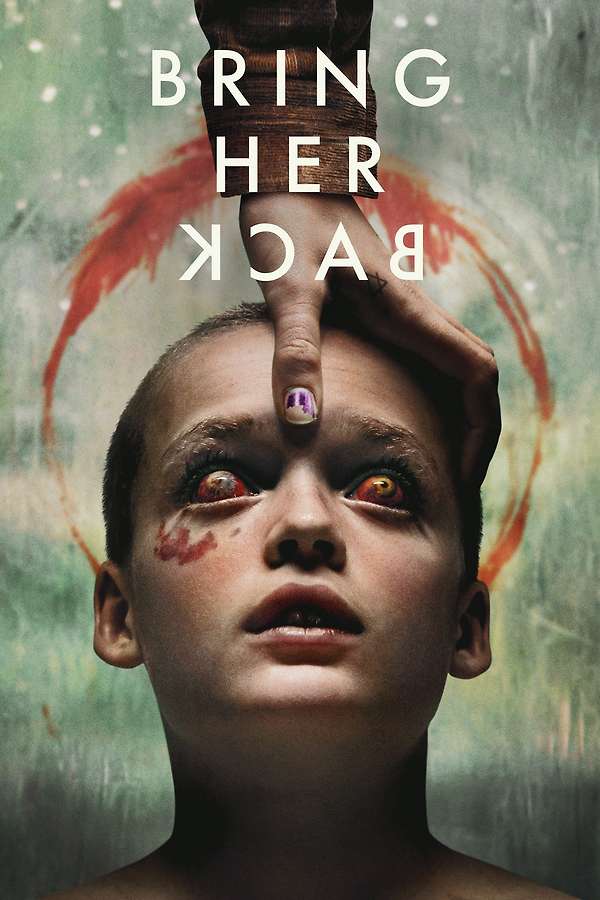
This review may contain spoilers.
Post Theater Notes #22
A sickening and traumatic film.
The horrific visuals in this film will likely become iconic. I can't shake the image of Ollie shoving the knife down his throat, hungrily cutting through his gums, his teeth swimming in blood, Andy watching in horror. There are also not many films that can get away with showing a bloody distended boy chewing off the eye of a long-dead girl's frozen corpse.
But the film resonated most because of the sensitive emotional bond between the siblings Piper and Andy. My heart was broken when Piper listens to Andy's final message, a tear rolling down her face, as she turns her blinded eyes to the airplane flying overhead. It was tragic that Andy died in that way after all of his suffering.
All that said, I'm starting to realize that I'm not usually a fan of supernatural horror. I don't like that the rules of the world are unconstrained. All the weirdness has less of an impact in a setting with demons and ghosts. The directors' first film Talk To Me had clearer rules, but even that film went off the rails at times. I also didn't appreciate that Laura was so unhinged. I get that she wanted to bring her daughter back, but I prefer a more grounded villain rather than this skin-crawling psychopath.
Overall, this film is just as good as Talk To Me, and has a better ending than that film. I'm excited to see what these directors do next. They definitely have an eye for stories of adolescent trauma, and know how to leave you devastated, while also burning images of unforgettable horror into your brain. 7.5/10
]]>
Watched on Thursday May 29, 2025.
]]>
This review may contain spoilers.
Close is my favorite film of the decade. I even started a YouTube channel for this movie (you can watch my Close edit here) - just to express my love for this beautiful and heartbreaking gem.
I didn't get the chance to see Close in theaters. I watched the film on streaming on March 9, 2023, and I posted a review for this film online on the following day. Now that I am occasionally writing reviews on Letterboxd, I chose to share my original review for this stunning film below.
Title: Close (2022) is a tender and gut-wrenching masterpiece of sorrow vulnerability.
I watched Close last night and I am still struggling to put the emotional devastation that it carries into words. This Belgian film tells the story of two 13-year-old friends who are closer than soulmates, with a bond stronger than brothers, and reveals the trivial adolescent chatter that can break something so warm into shattered fragments. This movie is like the sea: Beautiful, vast, with tumultuous depths beneath the surface, coming in stillness and crashing waves. The actors are incredible and the script and cinematography are flawless. If you appreciated Moonlight and Manchester by the Sea, there is a good chance you will love this film like I did. It is one of the most impactful films I have ever seen.
The twist blindsided me but left me shaking. When the kids are told that they need to come to the gym after the trip, I first thought "please don't say that Rémi is dead, I will hate this movie." The director Lukas Dhont's last movie Girl had a twist that was an exploitative failure on similar lines. But Close does everything and more that it needs to justify the shock of Rémi's death. It is a brilliant exploration of grief and guilt that only has a parallel in Casey Affleck in Manchester by the Sea. Eden Dambrine broke my heart. Some of the scenes that stick with me are Léo playing hockey, months after Rémi is gone, still numb and expressionless, and disoriented in the flashing light - you can feel the weight of his terrible burden. Another scene that will remain with me is when Léo returns to visit Rémi's room, with Rémi's mother watching, intense and conflicting emotions all over her face, smothering Léo and forcing him to flee. Léo's brother comforting him. The fight between Léo and Rémi, the shock and confusion on Rémi's face every time Léo rejects him. The field of blossoms. This one felt personal to me even though I only related in of themes of masculinity and the fear of getting too close to someone as a teenage boy. It will last with me for a long time.
]]>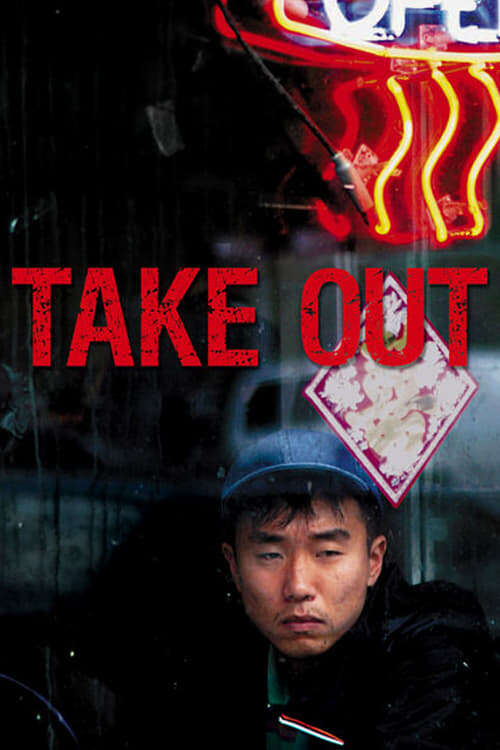
A poor man's Uncut Gems (complimentary). Also a time capsule of New York City in the 2000s, which has surprisingly changed a lot in the last 20 years.
This is co-directed by Sean Baker and Shih-Ching Tsou. Tsou just debuted her second directorial effort Left-Handed Girl in Cannes today, which she co-wrote with Baker and instantly shot to the top of my anticipation list.
I watched Take Out with my sister, who hated it. She said it was too stressful, "nothing happened," and she was frustrated by Ming's poor choices. I was amused by her reaction. I love stressful movies, and I was on the edge of my seat. It's true that it gets repetitive with all the deliveries, but I became invested in seeing the diverse cast of characters behind each door. Ming does make some poor choices, but I also empathized with his painful social anxiety. This is Baker's only attempt thus far at writing an introverted lead character, and he is remarkable as always in his perceptiveness.
We see the cruelty of petty crime, which in the past has often been dismissed or downplayed by the left, but without the melodrama, the shaky cam exemplifying a plain and everyday kind of ugliness. But what really makes this film glow are the small moments of humanity that shine through the pain.
]]>
Watched on Monday May 12, 2025.
]]>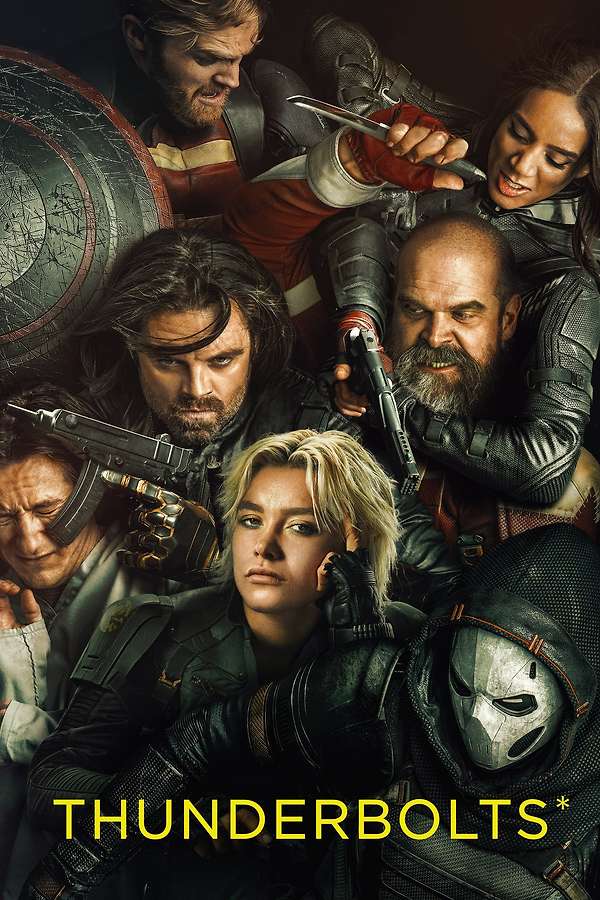
Post Theater Notes #20
I jumped into this one after skipping a few of the recent MCU movies, like the newest Captain America, The Marvels, Quantumania, and Black Widow. There was a lot of exposition in the beginning, probably to fill in viewers like me. I noticed that this film is a lot more like The Boys than I last ed from the MCU. OXE (first time I heard of it) seems to be modeled after Vought, the Thunderbolts are The Boys, Sentry is Homelander, and "the New Avengers" are the Seven. I prefer The Boys over Thunderbolts, although this movie was still enjoyable.
The best aspects of the film were Florence Pugh, her down-to-earth line delivery, and her stunts. The drama and themes were a bit thin, vaguely gesturing at an indistinct feeling of emptiness - it left zero impact. It didn't deal with depression and loneliness like I've seen in reviews, it just name drops these feelings like they're an inside reference and that's it. The scenes in the darkness/void were also pretty hollow. I once took a short fiction class, and I wrote a story where half of it takes place in a dark parallel dream world similar to the one in the film, in which it's unclear how it's impacting the real world. I received that this portion of my story was less interesting, and I can see why. 6/10
]]>
Deep Dive: Is ‘No Other Land’ Propaganda?
Plus: A Meditation on Evil
Winner of the Best Documentary prize at the Academy Awards. Highest rated film on Letterboxd from 2024. These accolades mean something, but do they mean that No Other Land tells the truth? In this 3,000+ word in-depth review, I will do my best to answer this question, while also exploring some larger philosophical topics.
This film tells the story of the Israeli army’s destruction of a number of Palestinian villages in the West Bank. For the purposes of this review, I read dozens of news reports on the events depicted in the film, and even the full Google-translated ruling from the Israeli Supreme Court in the Abu Aram v. Minister of Defense case. The picture that emerges is of a film that misleadingly hides key details, but still offers a fundamentally correct indictment of certain Israeli policies and malevolent actors.
Why This Film? The Oscar Expert and ‘Pure Fucking Evil’
I was persuaded to finally watch this film by Justin Jaegar from The Oscar Expert on Youtube, who made what, in my opinion, were some truly bizarre comments when discussing the film. He said: 2024 and 25 really feel like a pivotal moment where I'm just like, “Oh wait. Just pure fucking evil is running rampant and just exists.” And I don't know why, where, or at one point I just thought that was evaporated…The film just made me think, like, “there's just some deep fucking evil out there.”
I was not surprised that he saw “deep fucking evil” in the film. But Justin is a pretty smart dude. What failed in our education system such that it took until this moment, after 30 or so years of his life, when he finally realized that there is evil in the world? As he said, why, where, and how did this happen? This is someone who, I’m assuming, is intimately familiar with the 9/11 attacks. He was an adult when ISIS was systematically slaughtering Yazidi villages and mass raping their women and girls. He is no doubt aware of multiple mass shootings, including possibly the 2012 far-right attack in Norway where dozens of children were mowed down in a summer camp. It is especially notable that this realization dawned on Justin in 2024, but not in 2023, when Hamas butchered hundreds of Israelis in their homes. What about this film finally woke Justin up to the existence of evil in the world? I needed to see the film for myself. At the end of this review, I will try my hand at psychoanalyzing why it was this film that woke Justin up to evil in the world.
Justin continued “I really don’t believe [No Other Land] is propaganda…It does not feel that way whatsoever.” I accepted this as a challenge to make that determination myself. In my analysis, I will do my best to both explain whether it is or is not propaganda, and also why it does not “feel” like propaganda whatsoever.
Summary and Key Details
The events of the film, shot from 2019 to 2023, focus on Masafer Yatta, a collection of twenty small villages in the Israeli-occupied West Bank. One of the filmmakers, Basel, lives in a village in Masafer Yatta with his family. Yuval, another filmmaker, is an Israeli journalist and activist who befriends Basel and s the cause of protecting these villages. We are told that the villages were authorized to be demolished in order to build training grounds for the Israeli military.
Over the course of the film, we see Israeli soldiers bulldozing and destroying many of the homes in these villages, along with an elementary school. The Palestinian families who live there beg them to stop, but they are ignored by the stone-faced enforcers of the government order. Palestinians who stand in their way are frequently arrested, and they try to arrest Basel after he videos some soldiers at night. The Palestinians stage protests against the demolitions, and the soldiers respond with stun grenades, generally used for riot control. At one point, we see a large crowd of angry Israeli civilian settlers lobbing stones at the Palestinians, including Basel, while at least one soldier is watching without intervening. Later, more soldiers arrive, and they shoo both Basel and the settlers away.
There are two incidents in which we witness an Israeli shooting a Palestinian. In the first incident, a soldier shoots Harun Abu Aram in the neck during a scuffle over his radiator, which the soldier is trying to confiscate. Harun is paralyzed from the waist down from his injury. In the second incident, which occurs less than a week after the Hamas massacres of October 7, an armed civilian settler charges up to Basel’s cousin Zakaria al-Adra, who is holding a small rock. He shoves his gun into Zakaria’s stomach, then shoots him, inflicting devastating injuries.
In the clips chosen for the film, the Palestinians are, in general, all non-violent, and just begging to be able to live in their homes in peace, with equal rights. The only justification given for the destruction is that the Israeli military wants to build training grounds, and that the Palestinians who lived there for years have “no permits.” In one sliced up clip from Israeli TV, we see someone yelling at Yuval, who is advocating on behalf of the Palestinians, “you are against Jews in everything you do!” In the final shot of the film, we are told: A secret Israeli state document reveals the training ground was created to “block Arab villagers from expanding.” The film asks you to question: How can Palestinians retain hope in the face of a massive power like the state of Israel, which has no ounce of empathy for Palestinians, and is unilaterally destroying their villages and forcing them off their land? What can possibly be done?
Why the Film “Feels” Genuine
As I will note later in the review, this narrative leaves out many key details that can create a misleading picture. But while watching the film, like Justin said, it did not “feel” like propaganda to me. The film is not anti-Israel, in the sense that it does not denounce Israel as fundamentally evil. It does not make it its job to recite a list of crimes committed by Israel or a list of organizations and people that have condemned Israel. It is a film about non-violence, and it does not glorify Palestinian terrorism. Instead, it is solely focused on depicting the lives of these Palestinian villagers as their homes are destroyed. In this way, the film feels responsible, like it is respecting its boundaries. In its inclusion of sympathetic Israeli voices like Yuval, the film feels humane and cosmopolitan, rather than tribalistic.
The film uses many of the tools of cinema to stir our emotions. There is frequent use of sad music to accentuate the despair in difficult and introspective scenes. The film frequently focuses on the faces of little Palestinian children, including in many everyday scenes unrelated to the demolitions. Scenes are sometimes organized non-chronologically to achieve an effect. For example, we see Basel worried about getting arrested following a scene where he s a protest, and we are only later shown the inciting incident that precipitated the arrest order, when Basel tails patrolling soldiers at night. The film uses a split screen effect as it narrates that Israeli Jews can freely build settlements in the West Bank, showing a large settlement city (which it does not explain or give context for) contrasted with the demolition of a Palestinian home. Similarly, the film shows an Israeli car speeding down a road, then immediately cuts to a Palestinian child on a scooter on a dirt road. While Palestinians can of course drive in the West Bank, the cut is meant to illustrate the divide in power between the two populations.
Misleading Aspects of the Film
The film depicts many acts of cruelty and moments of pain, including the two discussed shootings, but the crux of the film’s focus is on the destruction of homes in Masafer Yatta. The entire film rests on the assumption that Israel’s destruction of Masafer Yatta is unjust. The film begins in 2019, and we are led to believe that Israel had just decided at that point to build military training grounds in Masafer Yatta. That’s at least what I assumed when watching the film. The film also seems to imply that the Palestinians living in these villages had lived there in the same way for a very long time.
But this is misleading. There are some key details, not disputed by either side, that are left out of the film. They include the following:
- Israel first declared the closed military firing zone in 1980, forty years before the events of the film.
- There are many satellite photos of Masafer Yatta from the time that the firing zone was declared in the 1980s. These photos do not clearly show any buildings or agriculture in the area. There was an increase in construction in the 1990s, and especially, the 2000s.
- Palestinians filed their first petition against the firing zone in 1997, eighteen years after it was first declared.
- In 1999, the Israeli government ordered all Palestinians to vacate the firing zone. The Supreme Court of Israel issued a temporary injunction against this order, but banned all new construction. In the twenty years from 1999 to 2019, the number of Palestinians living in the area multiplied by around ten times, and they continued to build new buildings to the growing population.
- The court tried to offer “mediation” and “compromises” throughout the injunction period, such as allowing the Palestinian residents to use the land for part of the year.
The Israeli government’s argument in court was that Palestinian activists settled in the area after Israel declared the firing zone, and it previously had no permanent inhabitants. They argued that the activists did so in order to establish a Palestinian presence and prevent Israel from controlling more land. The Supreme Court ultimately agreed with this argument, and therefore stated that it was legal to declare the area a firing zone, and it is legal to demolish the homes subsequently built in the area (although that was a decision left for the government to make).
Basel repeatedly mentions in the film that his family have always been activists, so this is not a far-fetched claim. In the film, we even see the villagers place children in the school to prevent soldiers from bulldozing it. If Israel's argument is true, this would put the situation in a very different light. This would not be a situation of Israel destroying the homes of Palestinian villagers just trying to live their life in peace. Instead, it would be Israel resisting an activist attempt to make sure more land ends up in Palestinian hands.
I also find it interesting that at one point, a Palestinian says “the Jews took all of our cars,” and it is translated as “the Israelis took all of our cars.”
Does ‘No Other Land’ Encapsulate the Israeli-Palestinian Conflict?
There is another aspect of the film that is misleading, but the filmmakers are mostly not to blame here. Inevitably, people will use this film to judge the entire Israeli-Palestinian conflict, rather than just the destruction of Masafer Yatta—an obvious fallacy. For example, Justin says “I think this film was important just to see on full display exactly what kind of conflict we’re dealing with when it comes to Israel’s relationship with Palestine...I think it sets the stage well for how Israel is viewing Palestine.” From what I can see, the film actually does a remarkably poor job of explaining how Israel is viewing Palestine. The only Israeli who gets to fully explain himself is Yuval, and I’m sure Justin did not have him in mind when he talks about “how Israel is viewing Palestine.” The soldiers and settlers are left as nameless villains, perhaps justifiably so, but we do not hear from them, and definitely do not get any window into their psyche or motivations. That is left for viewers to imagine on their own, based on their preconceived assumptions. It is not surprising that all Justin could come up with was “pure fucking evil.”
Moreover, the soldiers depicted in the film hardly represent all elements of the Israeli state or society. Israel is a parliamentary democracy, and the right-wing Netanyahu government that is in power for much of the film did not always rule, and only holds a slim majority in the parliament. Similarly, someone watching the film might come away with the impression that Palestinian resistance is largely made up of non-violent protests and petitioning for equal rights. In fact, while there are non-violent protests, there are also Palestinian terrorist groups (including in the West Bank) who frequently perpetrate brutal acts against innocent Israeli civilians, and it is widely accepted in Palestinian society that Palestine will not be free until Israelis are subjugated to Palestinian rule. But that is not what this film is about, so I cannot blame the filmmakers if rash viewers are left with this misleading impression.
My Opinion
I read explainers both from Yuval’s anti-occupation outlet +972 as well as the centrist site Times of Israel, along with various other news reports (including from Yuval) and the full Supreme Court ruling. Just in of the legal battle, which is not the most important aspect of the story, I am persuaded that the truth is somewhere in the middle. I do believe that there were Palestinian villagers who had homes in the caves of Masafer Yatta in the 1970s and 1980s, where they lived for most of the year. I also believe that there was a large influx of Palestinians moving to the area to deliberately make it more difficult to establish Israeli control.
But even if it was legal to establish a military zone, and even if Palestinians moved there deliberately, is Israel justified in destroying the family homes? In my opinion: Of course not! I share in the righteous indignation of the filmmakers.
The military argued that they need these specific lands for training because of “distinctive geographic features.” But the film is correct that secret documents (which, it doesn’t say, are from the 1980s) showed that firing zones were established in the 1980s for ulterior motives. Specifically, Israeli politicians wanted to create a buffer between the Arabs living in Israel and the Arabs living in the West Bank, to prevent them from culturally or politically ing together. Regardless of the original motives, I think it is clear why Israel wants the lands now. It is not because of “distinctive geographic features,” but rather, because they want to be able to hold on to more land. They know that if Palestinians spread across the West Bank, it will make it more difficult for Israel to surveil them (whether for security or other purposes), more difficult to use that land, and more difficult to retain it in later negotiations. But it is not Israel’s land! And it is grotesque that they are destroying people’s homes for political purposes.
I am also furious at the impunity we see for all Israeli crimes against Palestinians. I suggest reading the follow-up here and here regarding the Harun Abu Aram shooting, as well as here and here regarding the Zakaria al-Adra shooting. It is a good illustration of the way Israel says they look into crimes, but almost nobody is ever convicted. This impunity, in my opinion, is Israel’s greatest failing as a state.
So Is It Propaganda?
Given the current state of documentary film, I would advise against ever using a documentary as a source of information. As demonstrated earlier, even in this relatively uncontroversial film, the filmmakers used the tricks of cinema to stir emotion in favor of their cause. This is good if you see film as a tool for stirring emotion, but it is a poor way to learn information or knowledge about a particular topic. This is especially true when you realize that the film selectively humanizes some people but not others, and misleadingly leaves out information that many viewers would think is relevant. Political documentaries are generally two hour ments for their cause, during which you are not allowed to pause to validate any of the information, or disaggregate what is being shown to you. So yes, while I do think No Other Land is an important film, it is of course also propaganda.
In an ideal world, we would have a peer-reviewed certification process for documentaries that would indicate that the film meets published guidelines for objectivity and rigor. The closest we have today are relatively reliable news organizations that publish short documentary videos, like the New York Times’s Visual Investigations series. These only maintain credibility as long as the source that releases them remains credible.
Good and Evil
To close this review, I will return to Justin’s sudden realization that there is evil in the world. I wrote my undergraduate thesis on conformity. Ever since I wrote my thesis, I am constantly noticing the tenets of social identity theory playing out in the real world. Social identity theory analyzes the psychological ways in which our group identities shape the way we see the world. When people strongly identify with a group in a particular context, they begin to use group stereotypes to understand their own identity and opinions.
It’s not a groundbreaking insight, but it becomes more powerful when you realize how strong and dominant this effect can be. I recently read Judith Rich Harris’s groundbreaking book The Nurture Assumption, which analyzes this effect in children and its evolutionary roots. I am also influenced by the works of neuroscientist Lisa Feldman Barrett, which discuss predictive processing in the brain and the construction of emotion, offering a good way to understand the underlying mechanics in the brain for social identity influence.
At the end of the day, our brains are bundles of associations. We tend to simplify everything to its most currently useful core concept, and this applies when we think about social groups as well. Justin most likely sees himself as an enlightened man who leans to the left. For him, the word “terrorism” has not been conditioned to be associated with “evil,” but rather, with words like George Bush, Iraq War, the West, or Republicans. Less “evil,” more “axis of evil.” Israel, on the other hand, has been conditioned to be associated with like Black Lives Matter (we see a Palestinian Lives Matter sign in the film), and words like genocide, oppression, and colonialism, words whose specific meaning has sort of faded away, and in the end just stand for evil.
So why did it take until 2024 for Justin to realize that there is evil in the world? I think it comes down to word association. The usual targets for the word “evil” (such as ISIS or violent criminals) are most vociferously attacked by the right, which represent an out-group to Justin. Our brains are conditioned to distance ourselves from the attitudes of out-groups. There aren’t many remaining areas where all nuance is stripped away and evil is all that remains, but Israel is such an area for the particular in-group that Justin and many others identify with.
To boil this 3000+ word essay to a number, I rate No Other Land a 7/10.
]]>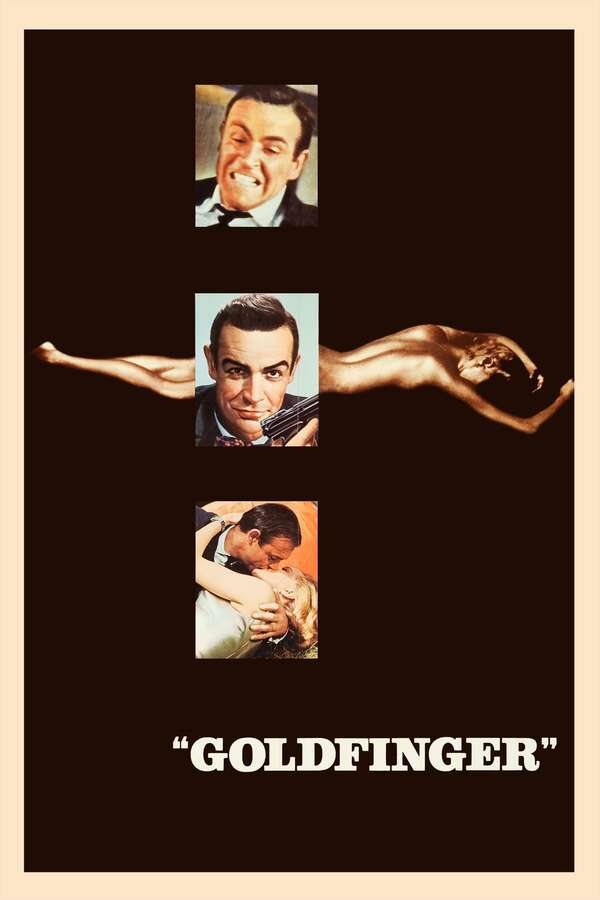
Watched on Monday May 5, 2025.
]]>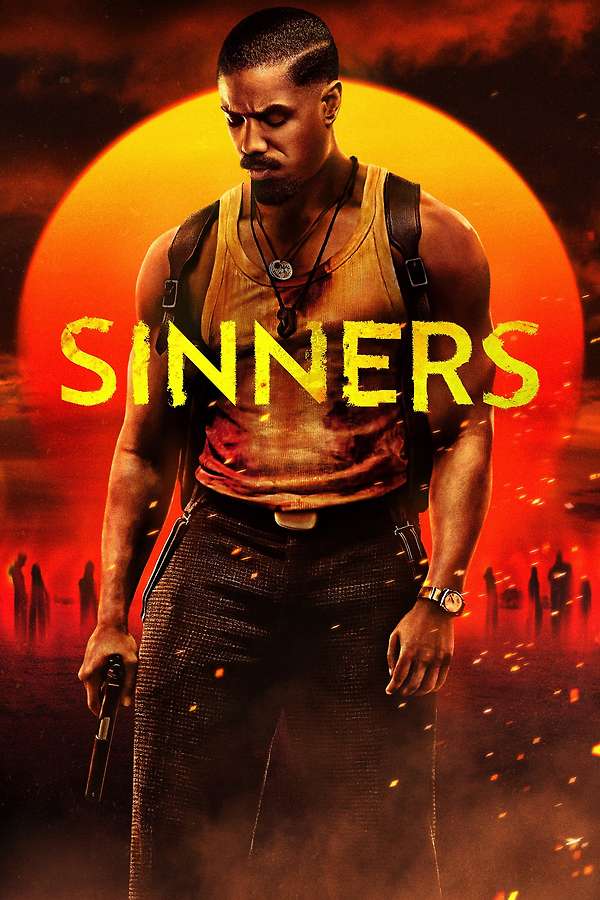
Post Theater Notes #21
Bold and drenched in history and ambition, this film ultimately bites off a little more flesh than it can chew.
The craft is impeccable, from the costumes, to the gorgeous cinematography in the sunrise scene, to the inescapable Ludwig score, to the flashy editing. Scenes are spliced and mashed up as if in the hands of the film's DJ, into a mesmerizing cacophony of music, ghostly whispers, and spraying blood. Speaking of which, I think everyone who watches this film will agree that the best scene in the film is that brilliant dance across time.
But the story is a bit muddled and confusing. It felt like Coogler threw together a bunch of spices into his thematic soup and I'm not sure they came together. At one point, I think it's implied that people are racist because they're jealous of black music. The vampires are seemingly supposed to represent something related to black history. Without asking the director, the best I can come up with is that they represent the music industry taking the blues and black music more generally and transforming it into soulless content for a broader and more hedonistic society. I don't share this deification of the blues, and I enjoy when music evolves and gets mixed in with other kinds of music, so the message (if that's what it is) didn't particularly resonate.
On a more basic level, the vampire tropes got a little repetitive, and I wish they weren't stuck in that same juke t for so long. The film was surprisingly funny. All the performances were great, including from Michael B. Jordan, although his twin characters are similar to many other characters he's played in the past. 7.3/10
]]>
Watched on Tuesday April 15, 2025.
]]>
Amazing! A haunting mix of delicate drama and experimental bewilderment. This is a must-see for those who love coming of age films, but also appreciate a film that challenges them.
The foster boy Samuel doesn't talk much, like many of my favorite characters. His quiet expression hides a rich complexity of rattled agitation and poorly constructed emotion, a boy who gradually loses his trust in the world. The most devastating yet heartwarming scene is when he comes off the bus after the skiing trip, and we finally get a glimmer of joy.
Rather than diving onwards into this emotional journey, the film becomes more symbolic, opaque, and demanding, particularly in its final dreamlike montage. It's a left turn, and not one that I would have taken. But it creates a space for a deep discussion of the themes, symbols, and messages, which I expect to mull over for days.
The soft cinematography is gorgeous. The nighttime driving scenes took my breath away. Evocative and weirdly nostalgic, I think this one will last with me.
Free on Tubi.
]]>
Watched on Thursday April 3, 2025.
]]>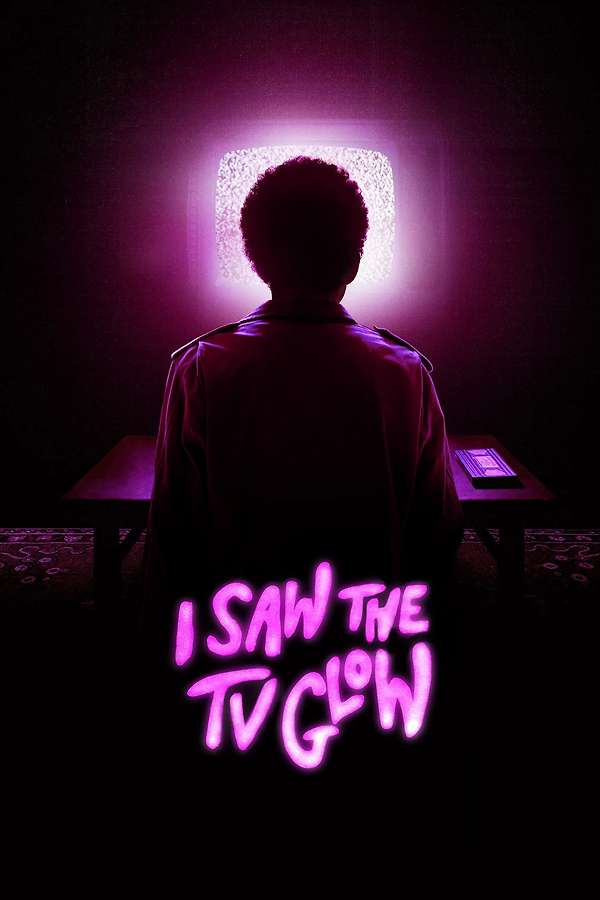
Post Theater Notes #20
I'm using a shot from this film as my current profile picture, but I've actually soured a bit on the movie since I first watched it. Here is my out-of-theater reaction.
[This note was written on May 18, 2024.]
One of the weirdest and trippiest movie I've seen in a while. Like a version of Beau is Afraid that is bathed in LED lights. The visuals and atmosphere were magnetic. I probably need more time to decipher it, but here are my immediate thoughts.
One clear layer of this movie is exploring the feeling of paranoia about the possibility that our world isn't real, that everyone around us is fake and we haven't accessed the reality beneath the camouflage. It's not a real feeling as much as a fear of a feeling. When asked if he likes boys or girls, teenage Owen says he thinks he likes TV shows. This touches on the other obvious theme it explores, the feeling that there is something more real and invigorating about the heightened reality in scripted dramas than what our mundane day to day lives have to offer. How some people substitute porn for sex, or watching travel vlogs from the comfort of their home.
Owen watches the show later in life and finds it cheesy, and as he gets older, he finds it difficult to breathe as the world becomes dull and dead. This touches on aging, and how the vibrant moments of our childhood dull with time, and we feel a gaping chasm as the world feels increasingly meaningless. Owen aches to be in the TV show, even if it means that he is choking to death in a hole in the ground, rather than continuing his mind-numbing routine of avoiding eye as he fills ball pits at an arcade center.
The most engrossing scene is Maddy's long narration scene where she explains what happens to her. This represents Owen's last gasp of feeling the vibrancy of childhood, his last chance he had to feel the excitement of life. As he abandons Maddy, the words "There is still time" are spelled out on a road, but Owen does not take advantage of his youth. The movie thus ends on a sad whimper, with the character getting increasingly more pathetic at the end of the runtime. It's unsatisfying, but suits the film's narrative themes. 8.2/10
Updated thoughts: I now associate this film with a dark curtain of depression. The sad whimper at the end unfortunately defines the film in my mind, as an unrelentingly bleak and morose piece, subsuming the layers of meaning that struck me on my first watch. I made an edit of this film but unlisted it because I didn't like to think about it anymore. 6.8/10
]]>
Post Theater Notes #19
I'm starting to add old reviews again. I watched this film before Trump was reelected.
[This note was written on October 13, 2024.]
A compelling and interesting portrait of a rising Donald Trump. It is understated in a way that is irable, treating Trump like a realistic character rather than a caricature, although this does also mean the film doesn't capitalize on the heightened drama you could soak out of his story. It shows Trump's transformation into a cold-blooded narcissist determined to win at all costs, and argues that Roy Cohn guided him to this place. My main complaint is that it showed the younger Trump as often unsure and timid, which I didn't buy, and this also made his transformation less convincing. In of the facts of the story, the film makes some accusations that don't come out of nowhere, they have some basis in evidence, but they're not necessarily confirmed (I'll have to look up the diet pills thing for example).
The performances were all great. While I don't like the decision to start Trump off as a reticent kiss-up, Sebastian Stan plays the transformation very convincingly, and his final iteration of Trump is easily recognizable (although it is eating some of Trump's genuine sense of humor). Jeremy Strong as Roy Cohn is the most charismatic and entertaining part of the film. And my favorite bit of acting is when Maria Bakalova as Ivana has to put on a smiling face for the cameras after Trump just assaulted her. We get a great taste of the world of New York (and especially the celebrity circles Trump ran with) in the 70s and 80s. This film isn't necessarily an amazing piece of entertainment, but it's a well-done and respectable dramatization for those curious about the this period of Trump's life. 7.3/10
Updated rating: 7.7/10
]]>
Super impressive that they managed to pull off the continuous shots as successfully as they did, made all the more miraculous by the consistently amazing acting. Incredible, riveting performances, especially from Stephen Graham (playing Jamie's dad) and Owen Cooper (playing Jamie).
The themes were more hit or miss.
The first episode was my favorite, both because of the brilliance in the shot composition as they switched between locations in real time, and also for the emotion of the final scene, when Jamie's dad is forced by cold hard footage to confront a shocking fact that no father would ever want to hear. Kept me guessing until the reveal.
I appreciated that the second episode shows the grim reality of schools today, where most kids hate being there, teachers are constantly shouting orders to kids who ignore him, and kids pit themselves against each other due to the tribal nature of human psychology. My favorite side story was with Jade (Katie's friend) - I know of kids like her, and her reactions were very real and heartbreaking. The chaos in the school was a bit exaggerated though, and I was already apprehensive about the manosphere theme it was starting to explore.
I was most conflicted about the third episode. The acting is astonishing - Owen Cooper as Jamie was captivating in his emotional lurch from vulnerable to explosive - and it is incredible that the show kept its flow with a single shot in mostly one room without any extra gimmicks. But the dialogue, which did have its moments of keen insight and high drama, also had many moments that did not feel super authentic. They established a plausible motive, but the Andrew Tate masculinity stuff felt like an adult framing their fears of young people by putting words in a teenager's mouth.
The final episode was the weepiest, most direct in its themes, and most genuine, but also the least surprising. Stephen Graham is masterful - I could hear, through the expressions on his face, the ringing in his ears, and I felt his fury at the cruelty of this world. It seems there are a few key messages: That social media is poison for young people, parents should be more mindful of their kid's lives online and outside the home, and parents can be normal and loving and still have kids turn out in ways they never expected. I don't really disagree with any of that, but it was too pat and preachy for me. I don't think the big danger of social media is that it will get boys to start stabbing girls to death.
Anyways, overall a great series, especially because of the choice to film in one take, and I expect we'll be talking about it for a while.
]]>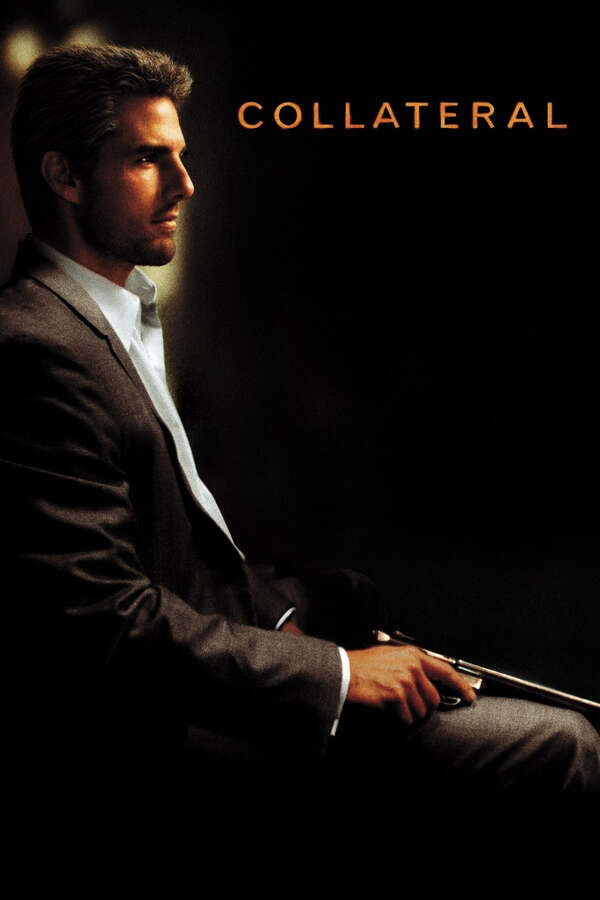
Watched on Tuesday March 25, 2025.
]]>
Post Theater Notes #18
A friend wanted to check this out, so I watched it with him. It was a packed theater. I'm pro-Palestine, and this film is obviously made by very pro-Israel people, but I was receptive to the message. Theoretically, you could even think Israel is committing a genocide (which I don't) and still the message of this doc (although I don't think there will be many in that camp).
The film is about the shock that many liberal American Jews felt when they saw celebrations, even in elite colleges, of the horrific Hamas massacres on October 7. It also shows the ways in which extreme anti-Zionism often leads to the marginalization of Jews. I thought it was particularly poignant when they pointed out that Jews used to be widespread throughout the Middle East, but when these nations adopted anti-Zionism as a core belief, it led to a situation where over 99% of Jews in these countries were forced to flee oppression. Anti-Zionism could be well-intentioned, but love for Zion (aka the Holy Land) is a core belief for the vast majority of Jews, so there must be a better way of opposing the harmful acts of the state of Israel without categorizing all "Zionists" (most Jews) as the devil.
The movie also talks about how these categories of "good people" and "evil people" are formed, and some of the misinformed biases that shape these dumbed-down psychological responses. It calls out human rights organizations for being incapable of strongly and unequivocally condemning atrocities against Israelis. While you can see in the film that there are many powerful of Congress who Israel, it is also true that TikTok is more powerful than all of the old institutions combined for young people, and unfortunately it's becoming their main source of news, which is insane to me.
This film is directed at people who a two-state solution, which as the film shows, is a rare belief among the organizers of pro-Palestinian protests. Needless to say, there will be very few Palestinian activists or far left ideologues who this film - they will all consider it Zionist propaganda. The film barely even mentions the horrific suffering in Gaza, which I didn't like. But it's not really about that. It's not trying to defend the actions of the Israeli government, it's just saying that there is something wrong when people celebrate atrocities against Israelis, and that it should matter that Jews for rational reasons feel unsafe. It puts you in the shoes of the well-intentioned American Jews who are rattled by the anger that ends up unjustifiably falling on their people.
But don't take anything depicted in this documentary as unquestioned truth! Look it up and find a diverse mix of reliable sources. I'm already familiar with most of the clips shown, which is why I feel like I can review this film. I think it does show the clips fairly, but there are some problems. It lumps together those attacking pro-Israel activists with those harassing Jews (and people who call themselves Zionists) more generally. It doesn't show the nuances that exist within the pro-Palestinian protests. You should read reviews like this one to get some context.
6.3/10
]]>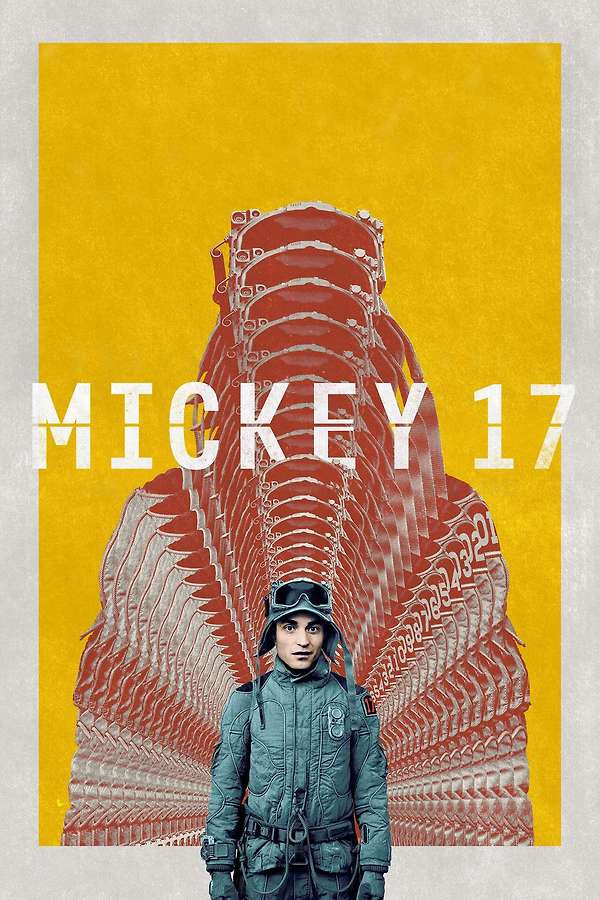
Post Theater Notes #17
I'm back at the movies, so I finally have a note I actually wrote after leaving the theater.
There is usually *something* I feel like I need to express after watching a movie, but with Mickey 17, annoyingly, I really don't have much to say. But there is one thing on my mind. (Maybe it's a bit boring, but who's reading this anyways lol.) Recently, I've been thinking a lot about what it actually means when you rate something out of ten, or rank it on a list. What are you actually measuring?
When I'm rating a film, I could be measuring lots of things: The way it moved me emotionally, the way it made me think, the layers and complexity of its message, the relatability of its characters, the feeling of tension or thrill or anticipation, the immersiveness of the audiovisual experience, the satisfaction of the twists and turns and the final payoff. Which of these is most important to me depends on my mood and what the film sets itself up to achieve. Mickey 17 has a compelling look, but otherwise it didn't blow me away in any of these respects. As a comedy, it also isn't particularly funny. But I'm still giving it a positive rating, purely because it was refreshingly original, both in its tone and in its world-building. It reminds me in that way of Valerian and the City of a Thousand Planets. At least it's something different, and that, combined with its always strong cast, was enough to keep me entertained throughout the runtime. 6/10
]]>
Boyhood on crack.
Or as @Nickstradamus aptly put it, Gummo by way of Minding the Gap.
The director of this doc is only a teenager himself when he first meets Sanyi, an impoverished little tough boy growing up in a crumbling Hungarian tenement block. We follow the boy and his family around for ten years, as he sprouts into a lean and cocky adolescent, until, in a remarkable coincidence, we witness his involvement in a shocking incident. By all rights, this film is destined to become a classic of social realism.
Alongside the unfolding story, the film's style evolves over time from an amateurish home video (I nearly shut it off lol) to striking cinematography.
The Hungarian-language reviews here mull over the heavy themes in a profound way. As one of the first English-speakers to discover this gem, I will try to keep my thoughts brief and high-level.
There is a temptation to read a normative message into real-life stories. With this film, the predominant message will undoubtedly be something about the fruits of poverty and marginalization, or the social determinants of antisocial behavior, coming from a kind-hearted desire to humanize boys like Sanyi. I'm not so drawn to this type of narrative. I prefer a more scientific and clinical approach, one that avoids discussions of the innocent child within the adult, that pushes aside questions of innocence and guilt in the first place, and instead recognizes humanity as a biological classification, that understands behavior as emerging from a complex mix of genetics, peers, neighborhood, home environment, and pure chance, that measures social interventions by their outcomes. When we fully embrace the scientific view, we can then appreciate the true beauty and tragedy and complexity of human beings as they really are, without the need to categorize them into these emotionally compelling buckets for easy content consumption.
]]>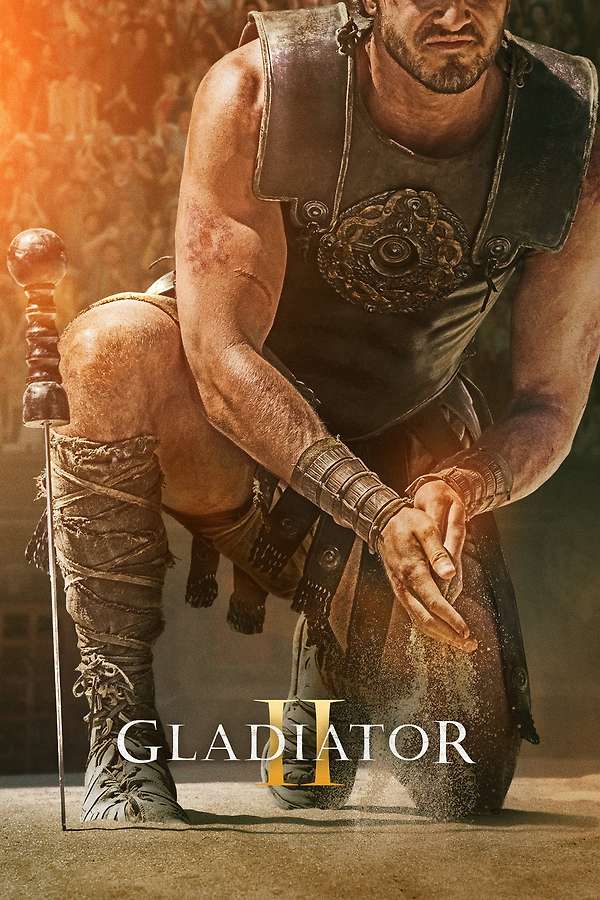
This review may contain spoilers.
Post Theater Notes #16
This one feels like it came and went without leaving a cultural mark, but I really enjoyed it.
[This note was written on November 27, 2024.]
Saw this one with my brother, who was exasperated by the historical inaccuracies and said he decided early in the film to treat it as a fantasy Star Wars type movie. I did the same - and I loved it! The world of ancient Rome is brought to life in thrilling form, with a gritty performance from Paul Mescal, who lives up to the legacy of Russell Crowe from the first film. The gladiator scenes were true spectacles to an almost comically entertaining degree, ape and shark battles included. The city feels vast and lived-in, with spectacular production design, and great costume design for the soldiers and gladiators. I enjoyed the animation in the opening credits. There is a coincidence which strains all credulity, of the lost boy Lucius ending up as a gladiatoral hero with his mother watching in the arena. But I didn't get bogged down in the realism. I wasn't sure what to think about the emperors, it was very similar to the first, and the movie's ending was corny and too pat and sentimental. The glamorization of the Republic and a dream of Rome that welcomes strangers is probably anachronistic. But all that didn't keep me from loving the experience. 7.9/10
Updated rating: 7.6/10
]]>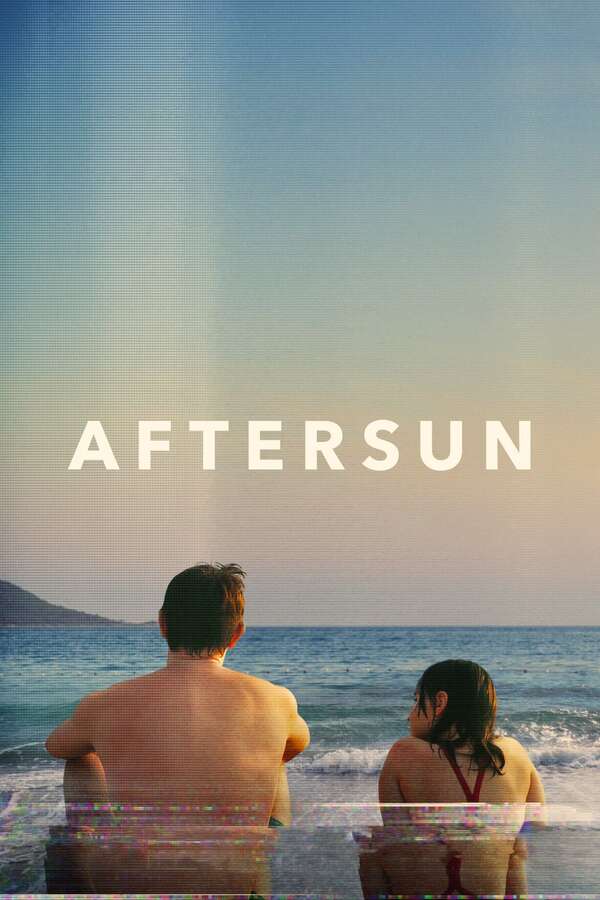
This review may contain spoilers.
Post Theater Notes #15
I got distracted the past week, mostly with watching Severance, but I'm back to adding these old reviews. This time, my out-of-theater reaction to this deeply personal, carefully observed self-exploration from Charlotte Wells.
[This note was written on December 10, 2022.]
This movie broke me at the end. I expected it to be devastating, and I was holding my breath throughout the movie, getting impatient, and then it hit. I drove a few towns over for this one, spent some time trying to find paid street parking, and got here a few minutes late. There were just a few couples in the tiny theater room with me, coming to watch the film about the depressed 30-year old dad. What stood out immediately is that the movie was about a family vacation - but it was so melancholic. Sophie smiles a lot and says she's enjoying it, but her and her father both know there is a deep core of sadness to this experience. And there isn't necessarily a simple plot twist reason for the sadness. There are visions of the father dancing at a rave, carefree and out of his mind, in the dark. You think it might be real, but it's not. It is just a vision. I think it's Sophie's vision. She once loses her composure and gets upset that her dad is ruining her vacation, but in the end she just wants him to be happy. And she tries so hard to be happy for him, but even though he has brief glimmers of happiness, he's broken and the hope has already slipped away - it's too late. While watching it, the early bulk of the film felt tedious because nothing was happening and it felt joyless, and I was wondering why we didn't see the carefree attitude you'd usually see between a loving father and his daughter, but the delicately powerful scenes at the end of the film put the rest of the film into its proper perspective. 8.5/10
Updated rating: 8.9/10
]]>
Watched on Sunday March 9, 2025.
]]>
Watched on Saturday March 8, 2025.
]]>
You have another place, Hisashi.
A soft, quiet, human story that disarmed me and charmed me and brought a smile to my face, until its stomach-churning left turn.
It is the story of a sincere, wholesome, stuttering young boy who just wants to figure skate, his resilient mentor, and the ice-cold rules we make as a society. Of innocence and disillusionment, our capacity to love and our capacity to hurt.
I just wish it cut to black before the final scene.
]]>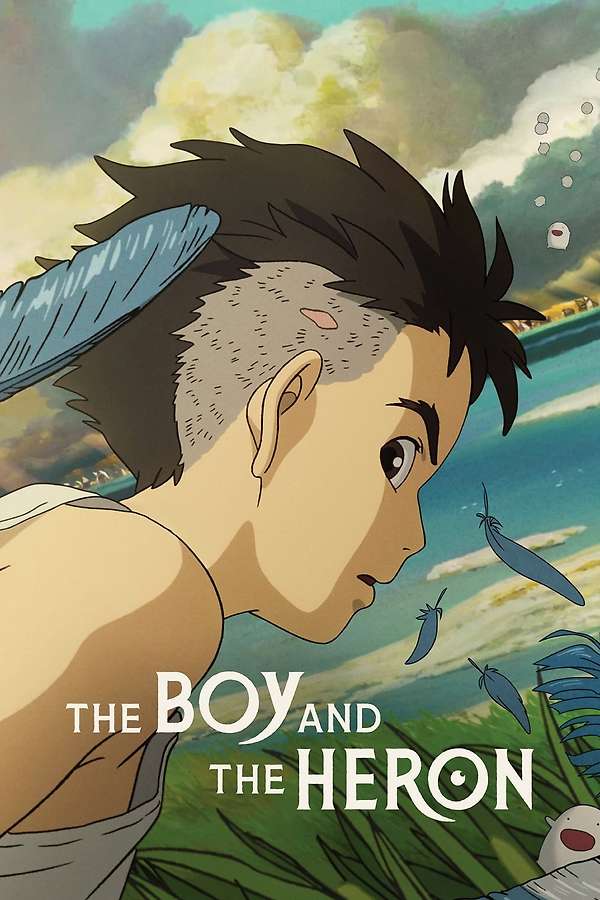
Post Theater Notes #14
The rightful winner for Best Animated Feature in 2023.
[This note was written on December 11, 2023.]
A gorgeous movie with a stunning score, a world of beautiful paintings. The boy has little to distinguish his character, but I still found his quiet resolve and striking profile very compelling. The story and world are dreamy, although I could make little sense of it except the obvious idea of a parallel spirit world. If there is some greater point or analogy it was not very obvious, although ittedly I just came out of the theater and didn't think it through very much. It was a cute idea to use those puffy white orbs (which I believe were in other Miyazaki films too) as souls ready to be born into babies. The heron was annoying, and the father and grannies were disposable as well. 7.7/10
Updated rating: 8.1/10
]]>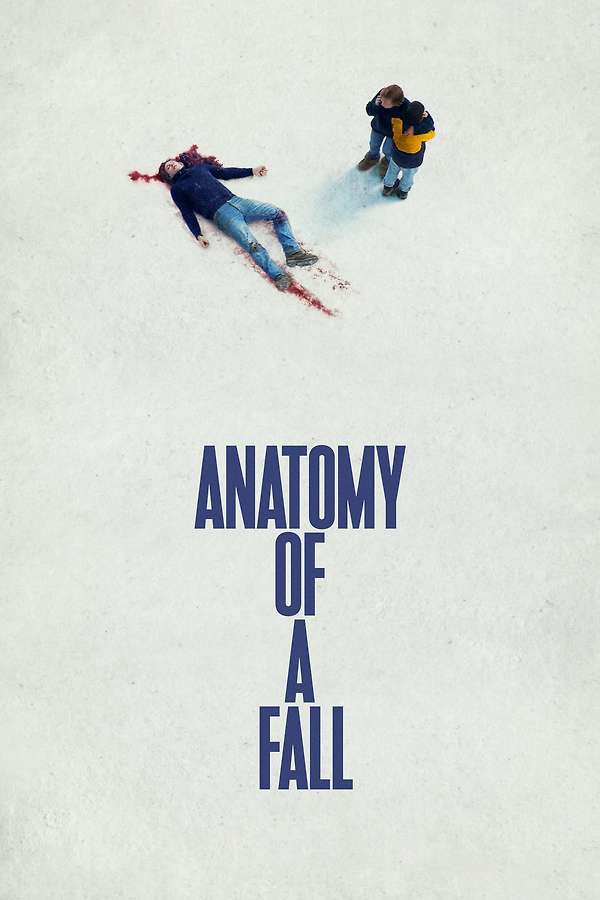
This review may contain spoilers.
Post Theater Notes #13
One of my favorites from 2023. I have an edit for this film on my YouTube channel, focusing on the creeping doubt tearing at the souls of Sandra & Daniel.
[This note was written on November 9, 2023.]
Taught and powerful. Long, but every second kept me riveted, every detail so carefully crafted. Sandra Huller's performance is meticulous, as a woman with a cold demeanor who is pushed to her breaking point, exposing moments of raw vulnerability. She shows her acting range with her outburst in the big argument scene, but wisely is mostly more subtle in her performance. The boy is heartbreaking and the soul of the film. His blinded eyes are striking. He is so intelligent and mature, holding on to his version of reality, but seeds of doubt threaten to tear him apart. There is a moment when the trial gets bogged down in the details for a little too long, but then it all comes back into focus when Daniel says he wants to testify. When the dog almost dies, when Daniel cries out "fucking help me," when he thinks back to his father's story about the dog, the hug at the end - what a way to close the film. Other than some slow moments, the other main criticism I'd have is that the case against Sandra is very weak, even without Daniel's help at the end, and it's very hard to imagine that any jury would have ruled that she is guilty beyond a reasonable doubt. But otherwise, incredible film. There isn't necessarily some big message, even though it does leave a lot to think about doubt and truth narratives, but it's a moving, gripping, gorgeous, and excellently written drama. 9/10
]]>
This review may contain spoilers.
Post Theater Notes #12
I watched this a month ago and it was easily catapulted into one of my favorites from last year.
[This note was written on February 2, 2025.]
I generally don't like when movies tell you how to feel about fact-based issues that are best understood through careful research. But this is my out of theater reaction, and that was a powerful and incredible film. Even if we separate out the depiction of political issues in Iran, this was a tense drama of authoritarianism and distrust within the home. You see how political divides can create alternative realities that divide families. In the right culture, where authority cannot be questioned, it can lead a man to justify persecuting even his own wife and children.
All the acting performances were remarkable. If I had to pick a standout, it would be Mahsa Rostami as Rezvan - I left the theater shaken by the bewilderment and fear on her face as she is interrogated, and later, when she confronts her father for the last time. Each of the characters are fascinating in their own way. In particular, Sana's decision to take her father's gun is confusing, but I believe the script intentionally kept it confusing to mirror the confusion of her family. The most likely explanation is that she was radicalized online, and I am left to decide how I feel about her radicalization's chain reaction, which led to the destruction of this family in the name of fighting authoritarianism.
In of its politics, the film at first feels too much like a shoehorned dramatization of the Mahsa Amini protests, applying simplistic arguments about a real life situation using a fictional protestor in the family's house as the framing device. But I was struck by the juxtaposition at the end between Iman's dead hand rising from the dust to choke his seed, like the tree of the sacred fig, and the real life footage of women in Iran showing a moment of reckless joy by tearing off their hijabs. Of course, I strongly oppose the authoritarian theocracy in Iran, so while I don't believe people should get their facts from films, I hope this one galvanizes change. 8.7/10
Updated rating: 8.5/10
]]>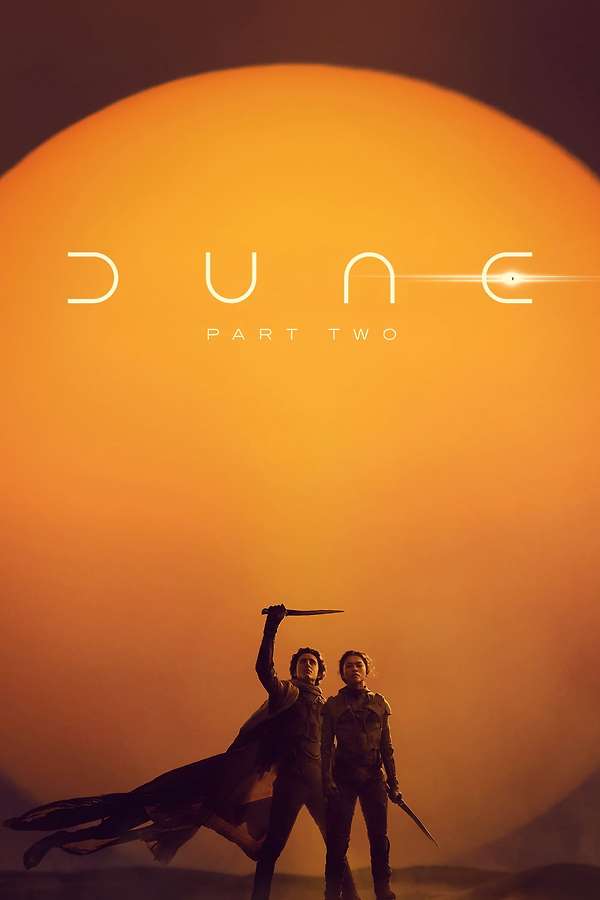
Post Theater Notes #11
This monumental sequel from over a year ago tentatively remains my favorite film of 2024, in the mix with newer movies like The Seed of the Sacred Fig and I'm Still Here.
[This note was written on February 29, 2024.]
Epic in every sense of the word. Dune 2 is all about the cinematic experience, an action film that holds you in its grip of suspense with thunderous sound and staggering scope. Hans Zimmer killed it. The Dolby theater seats shook the entire room with their vibrations.
Less meditative than the first, it propels you through its runtime with ease, from riding the sandworm to the final battle. It also maintains its mythos and consistent themes while sliding in a few deeper layers. The film invokes the trope of the savior and chosen one, but undercuts the cliches with Chani's compelling rejection of Paul's authority. Rather than feel inspired by Paul's rise and dominantion, I found myself sharing Chani's hostility to the Fremen's worship of their new prophet, even though he doesn't really abuse his power. It is unclear if the film wants the audience to cheer for him or question his authority like I did. [I later learned that this is of course intentional.] The messiah narrative is so authentic and makes me think of particular historical false messiahs.
Timothee would be deserving of best actor praise and Zendaya is great as always. (I'm not sure I fully understood Paul's transformation as a character though.) The sandworms are stunning like in the first film, the prophecies remain mesmerizing (the vision of an ocean was particularly memorable), and the world-building remains fascinating, with the Fremen emerging from beneath the sand to fight standing out as a compelling and curious choice. You can nitpick the fight scenes, with fighters making some poor decisions and the Fremen succeeding more than they should, but I wasn't too bothered by this. The emperor and baron are weak villains. Austin Butler is striking but also too over the top. There is a certain sameness to the visuals - the black and white gladiator scene does a good job of breaking that up. I did not expect this film to end on a cliffhanger like the first and the throne room showdown was underwhelming.
There was a really odd moment when the screen sputtered and went to black, and then kept flickering back on a scene with Austin Butler saying "just the tip." The packed audience here for opening night erupted in laughter. It took them another 10 minutes to restart the film, and then it repeated 10 minutes we had already seen, so I used this intermission to take a bathroom break.
Ultimately, the audiovisual experience sticks with me as I write this in the car more than the plot or anything the film has to say. 8.3/10
Updated rating: 8.5/10
]]>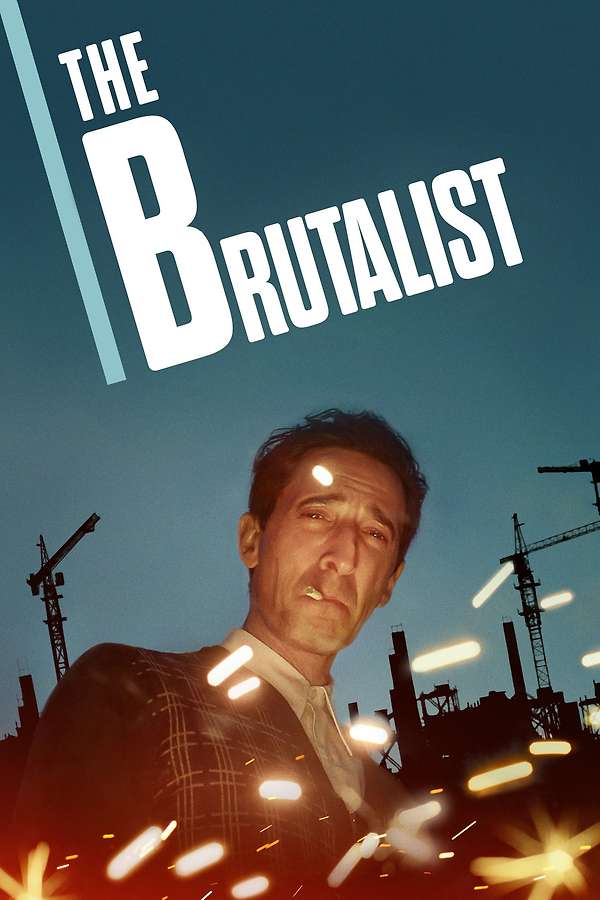
This review may contain spoilers.
Post Theater Notes #10
One of my favorites of this year's Best Picture nominees.
[This note was written on January 25, 2025.]
A strange ode to brutalism, marked by its awesome direction, this film aims to condemn the rot (it argues) festered in the bourgeois society of postwar America. It is bolstered by its classic-sounding score, and the shot composition and cinematography remind me of a PTA or Scorsese movie. It is unmistakably shot on film, the look cold and gritty, like the all-important construction materials that represent the bars enclosing the fictional architect's heart. The Adrien Brody performance leans heavily on the accent, but he is not a caricature - he is a grounded character, even warm and friendly at times, but it's clear there is something dark inside of him that is eating him up.
For much of the runtime, it feels like we are wasting our time waiting for him to complete this structure that will never be completed. The "twist" of Van Buren's rape came out of nowhere, his monologue about "your people" was a bit heavy-handed, but I get the symbolism and it gives you something to think about. The revelations in the epilogue are interesting, particularly that the tight rooms in the church represent the cells where they had been placed in the concentration camps. The final quote of the film ("it is the destination, not the journey") suggests that László carefully hid his true intentions from Van Buren, subversively taking the money of a depraved man and successfully using it for his own ends, even as he fell into depression and endured through Van Buren's assault. It is a curious choice, but I wish it wasn't explained in a speech. I wish we instead saw László's explicitly struggling with his memories of the camps as part of the events of the film. 7.7/10
Postnote: I later realized after checking other reviews that Zsófia isn't necessarily a reliable narrator in her final speech, and that could explain the disconnect between what she says and what we see. That masterful opening scene on the ship has stuck with me - maybe my favorite scene of 2024. Updating rating: 8/10
]]>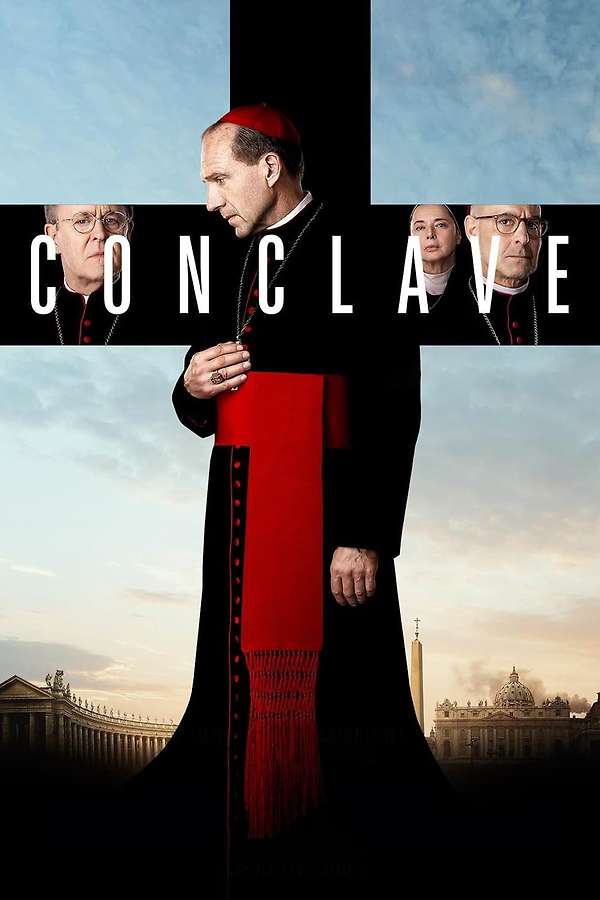
This review may contain spoilers.
Post Theater Notes #9
Another big awards contender. As you can see, I thought this would be a controversial film, but with hindsight it seems to be a crowdpleaser and the controversy never really caught on.
[This note was written on October 29, 2024.]
I had an inkling of what to expect after seeing reviews calling this seemingly self-serious religious movie "silly" and "Knives Out in the Vatican." The movie does a good job preparing you from the beginning, making sure you know this is not your typical pope movie - here, cardinals text, smoke, and joke around like regular people. But it wasn't as silly as I expected. It was mostly a taught thriller, keeping me on edge throughout the runtime. The entertaining twists and turns highlighted big topics in the Catholic Church, including the liberal/conservative divide, celibacy, sex scandals, and corruption. (I don't know if I believe the system is as nakedly political and cavalier as they make it seem, but they balance it with enough gravitas that it es muster.)
The heart of the film is a character study of Lawrence, brilliantly and carefully played by Ralph Fiennes, as he unexpectedly is placed in a position to taste power and accept ambition, only for it to get yanked away from him. My favorite moment was the explosion scene in the church, which suddenly ripped the narrative to shreds, and was the turning point for Lawrence's character. Unfortunately, the film will be most ed for its final twist - that Benitez, who is ultimately selected as pope (and who is actually the most worthy), is also secretly intersex. I'm sure this was already controversial when the book was written, but now it annoyingly becomes a major cultural war trigger for conservatives after this year's Olympics. It felt a little too much ripped from the news and confrontational even for me - I was disappointed that this scene loses the movie a bunch of its audience. That said, I was grinning from ear to ear when I left the theater - I just couldn't believe the movie went there! In the final scene, Lawrence places a turtle in a fountain with a satisfied demeanor as we hear the crowds celebrate Benitez, who Lawrence allowed to supplant him. The scene felt underwhelming, but it does have its poignancy. In of the craft, the directing and cinematography decisions in the film were surprisingly strong, with many striking shots, matching the assertiveness of its very catchy score. 7.3/10
]]>
This review may contain spoilers.
Post Theater Notes #8
This time, a review of the current Best Picture frontrunner for the Oscar this Sunday.
[Note was written November 3, 2024]
I was frustrated that I didn't like this more given that I am a huge Sean Baker fan. I was hungry, and irritated about my tire pressure issues, and the volume in the theater was too low, so it's possible I'd like it more on rewatch. Ani is similar to all of Sean Baker's other leading characters, especially Halley from The Florida Project, but also his leads in Red Rocket, Tangerine, and Starlet - talkative, blunt, young, working class, attractive, and always a sex worker. The dialogue is as authentic and gritty as always. Mikey Madison adds a depth missing in some of those other characters. She isn't just an airhead. There is something wounded in her eyes, and you go on a journey with her from learning to trust Ivan, and seeing her joy at hitting the lottery ticket, only for her to experience denial, anger, and ultimately grief when her facade falls away, as you see her break down in tears at the end. But I did still feel like I've seen this before, and I'm surprised she's the favorite to win best actress.
I'm also surprised this film is the favorite to win picture and director, given that the showcase of tits and ass in the first few minutes pushed the couple in front of me to get up and leave. For my part, I enjoyed the first act, and shared in the joy with Ani when she gets saved from the seedy world of sex work and lives her dream with this seemingly cute and nice kid. My main complaint is that the movie began to really drag once Ivan's handlers got involved. I got the point - he was an immature rich kid who screwed a girl's life over. The fight with the handlers and the search for Ivan went on way too long and really tested my patience. The annulling portion, too, felt like it was going through the motions of a script that was already played out. Ani's bitchiness to Igor also turned me off from her character. But the film has its saving grace with the final scene, which was gorgeously shot with the snow piling up on the window. It was gratifying to see Igor get the respect he deserved (I just wanted to see the ache in his eyes slip away) and I was glad that Ani falls in his arms. 6.4/10
Updated rating: 6.9
]]>
Watched on Thursday February 27, 2025.
]]>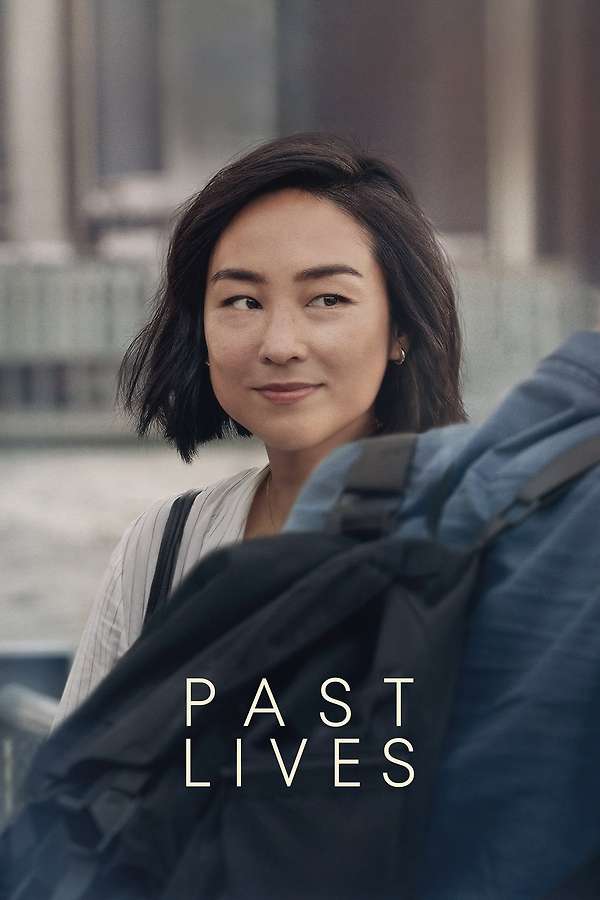
Post Theater Notes #7
I've been busy and haven't watched a movie in a while, but I will continue to post these notes. Every now and then, these notes became a fuller review - here is one for one of my favorites of 2023. I have an edit for this delicately written film on my YouTube channel.
[This note was written on June 28, 2023.]
An aching and entrancing film. On the surface, it is the story of a love triangle between its captivating lead acting trio, but on a deeper level, it is a delicate meditation on the power of romantic narratives. The score's gorgeous piano notes and the mesmerizing cinematography create the perfect atmospheric backdrop for the exploration of these themes. I felt like I was right there with them.
Hae Sung, Nora's childhood crush from Korea, is humble and emotionally vulnerable, characterized by his devotion to Nora. Nora's current husband Arthur is a tragic figure, plagued by the realization that he cannot live up to the powerful romantic narrative embodied by Hae Sung. Nora herself is the most complex. As a child, she is not a very sympathetic figure, since she seems self-possessed and does not show much care for Hae Sung when leaving him. As an adult, she arguably continues to lead him on and also is ineffective at reassuring Arthur. But she becomes a much more sympathetic character who means well and genuinely cares about both of them.
The two men are essentially archetypes used to probe the film's questions about the nature of love. The film's only major weakness is that it is singularly focused on its exploration of these questions, otherwise only thinly sketching its characters. We learn little to nothing, for example, about the years that Nora and Arthur spend together. But its dissertation on its themes is masterfully written. Hae Sung represents the fairy tale dream, a bond built from the roots and from years of longing. Arthur represents the realities of who Nora has become - after so many years together with him, their compatibility has been forged almost metaphysically through the power of in-yeon. The movie shows that we can hold onto the reality of Nora and Arthur's practical compatibility as a loving couple, while also cherishing the wistfulness and sentimentalism of Nora's history with Hae Sung. Ultimately, the allure of Nora and Hae Sung is rooted in their story and their childhood connection, and Nora can still hold onto that meaningful story and childhood connection as she moves on in her life with Arthur. 8.6/10
]]>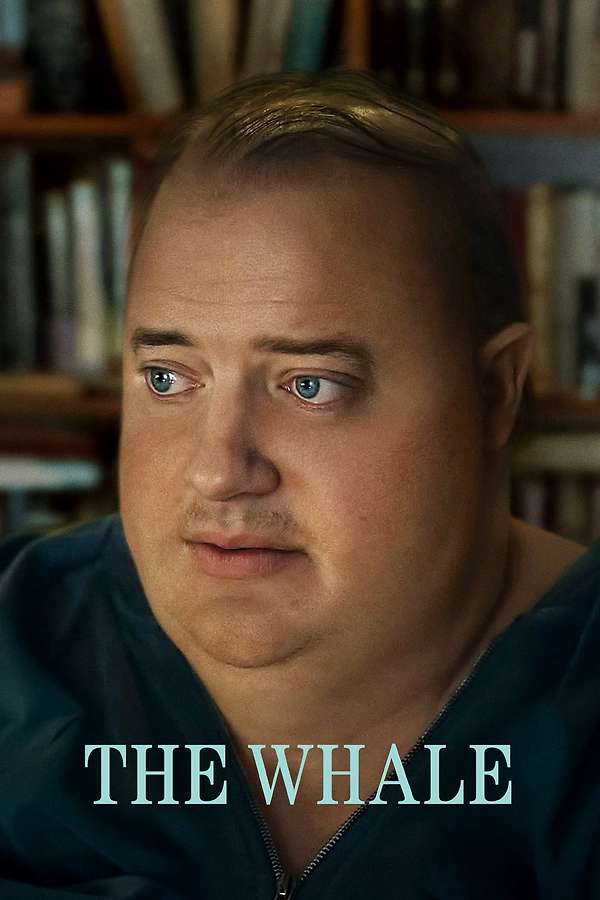
This review may contain spoilers.
Post Theater Notes #6
This was the highest rating I gave a movie in any of these post theater notes. One of my most emotional theatergoing experiences. At the time, it became my favorite film of 2022, until it was later dethroned by the gentle devastation of Lukas Dhont's Close.
[This note was written on December 21, 2022.]
What makes a movie perfect? Whatever it is, The Whale is not perfect. I didn't like the aspect ratio. The missionary kid is not a great actor. Ellie is sometimes so horrible that it's hard to believe she's real. But what can I do if a film leaves me broken into pieces, more shattered than I have ever been in a theater? And not from cheap tear-jerking, but from layered and genuinely poetic storytelling? Nothing knocked me flat like The Whale - ever. "She is evil," the mother in the film says about her daughter. "She is amazing," Charlie answers. And he held on even to the point of delusion to the wishful shred of beauty, to the little glimpse of humanity he saw in the world, because he knew that at our core, at our true honest core, we all are humans who care. And that's what Charlie cherished and grasped onto until the last breath. 9.5/10
Updated rating: 9.3/10
]]>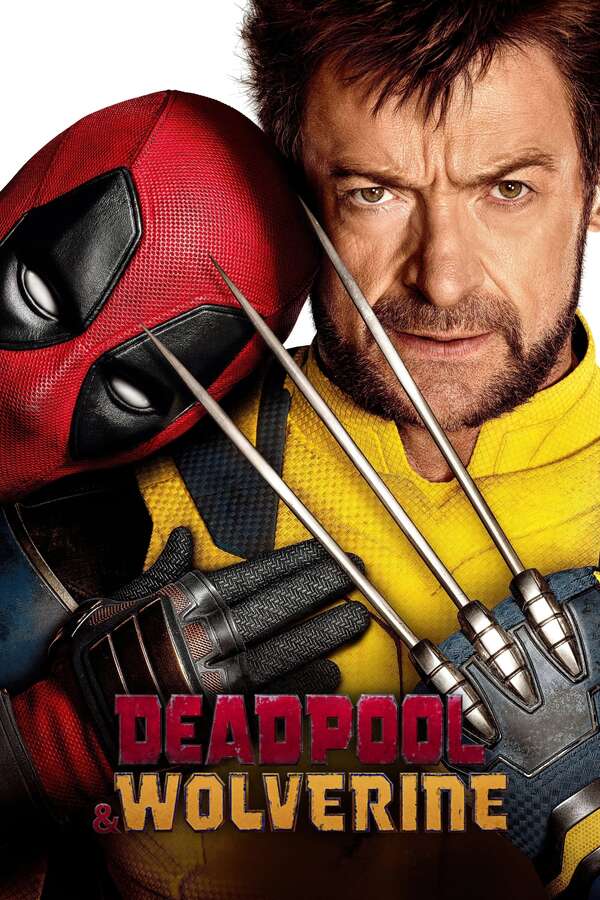
Post Theater Notes #5
This was the lowest rating I gave a movie in any of these post theater notes (I've reviewed about 70 or so films). I usually rate a seven or above, but with all respect to those who enjoy these films - this one was not for me.
[This note was written on September 8, 2024.]
Compilation of boring Marvel inside jokes and fan service, populated with annoying non-characters, in an aimless non-story, stuck in this ugly CGI playground they refer to as The Void. And despite its promises, it doesn't even give the multiverse the mercy killing it needs. IP mining at its worst, on the grave of some great Fox X-Men movies. Best I can say is that I chuckled a few times and the opening credit scene was fun. 2/10
]]>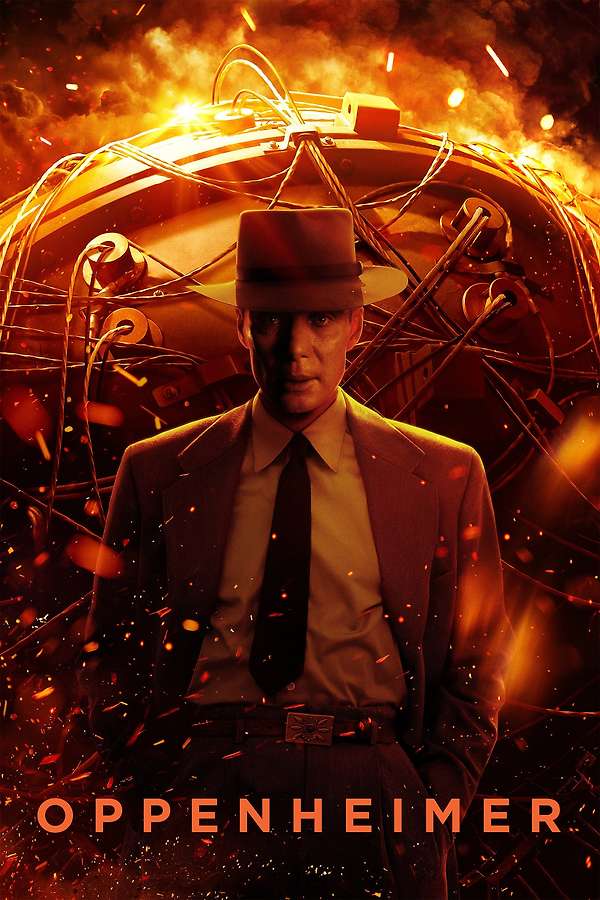
Post Theater Notes #4
The next note I'm choosing to share is from last year's Best Picture winner at the Academy Awards. Enjoy!
[This note was written on July 25, 2023]
Tough one to review. I had a bit of a headache and was tired. The opening was chilling and teased my hopes for the movie. I came in expecting the movie to both enthrall my senses at the power of the atomic bomb while also exploring deep conversations about what a weapon like this really means. The first two hours was a stretch of gradual disappointment. I was not very interested in the step by step events at Los Alamos or in the McCarthyist storyline. The hype made me think it would be an experimental film and it started to feel like a stereotypical biopic. I also was getting distracted by the couple whispering next to me and it was hard to hear the dialogue. I eventually asked if they could be quiet. But I was shaken alert by the test explosion scene, which delivered on the majesty and thrill I had been anticipating. And then I was an emotional wreck for the best scene of the movie, when Oppenheimer delivers a speech after the bombs are dropped on Japan, and while outwardly celebrating, is suddenly horrified as he imagines radiation tearing apart the crowd. At that point, the movie suddenly became more interesting to me. While it subsequently does not pursue this line of exploration as much as I would've liked, I began to care about the Strauss betrayal, because Oppenheimer's guilt humanized him in a way that the rest of the film did not. 7/10
Updated rating: 7.5/10
]]>
Post Theater Notes #3
The previous post-theater note I shared was the first one I wrote back in 2022, for Bones and All. Now I'm pivoting to my most recent review, written just last week, for the Brazilian heartbreaker I'm Still Here.
[This note was written on February 12, 2025.]
Deeply moving family drama showing the agony of this painful chapter of Brazil's history. The first act dazzled me with its enamored depiction of this family's life in Rio. I could've watched hours of these gorgeous simple shots of the family on the beach, loving and intimate and physically affectionate with each other, or chatting over dinner at the table in their elegant home. We soak in their daily life and learn all of their personalities - the inquisitive Babiu, the sweet Marcelo, the playful Nalu, the resilient Eliana, and the adventurous Vera.
In the second act, they are thrown into darkness, as the shadows of the dictatorship become only too real, culminating in the nightmarish prison scenes, where we learn more about the political undercurrents rippling through the first act. With Trump's brazenly illegal acts today and the indifference from the public, I don't think it's hyperbolic to say that I can feel that dangerous creep of dictatorship, which makes this film so resonant.
Fernanda Torres is stunning, delivering possibly the greatest performance of 2024. From a loving mother who steals kisses with her husband, to the broken woman in prison, to her most staggering work as she deals with her husband's disappearance and death. One of the most tearful scenes of the film is when Eunice returns home and climbs into the shower, a shell of herself, but wipes away her tears and strengthens herself to hug her traumatized middle daughter. The other devastating scene sequence is when the news of her husband's likely death is broken to her as her older daughter peers into the room in horror, and then her vacant face in the restaurant, as she sits in shock but keeps up appearances for the sake of her children. The emotion is realized by the gripping mini-score, just a few repeating notes, but grasping at my heart. You understand what she is trying to accomplish when she instructs her family to smile to the reporters - she feels that it her responsibility as a mother and citizen to make sure her children are happy in life despite the murder of their father.
The film gets a little lost in its double epilogue. I appreciated the 1996 scene where Marcelo and Babiu discuss the moments when they recognized that their father wasn't coming home, and liked how it tied into the callback in the final post-credit ghostly walk through the empty house. But both epilogues dragged and the 2014 one in particular felt out of place with the pacing of the rest of the film. It also made it feel too much like an issue movie, where the director wanted us to know all the interesting details about this real family's life and layer on a bunch of extra themes. I though it was much more effective when it was just a family drama that moved through time at a consistent pace. The reality of the enforced disappearances issue is important, but not as emotionally impactful as the earlier depiction of an almost anonymous family's devastation. 8.2/10
]]>
This review may contain spoilers.
Post Theater Notes #2
I am continuing my project of posting old personal notes I jotted down when I left the theater after watching a movie for the first time. This time, I am sharing my first of these reviews.
[This note was written on November 24, 2022.]
The first of my post-theater notes. This film was entrancing, reminding in that way of Luca's Call Me By Your Name (although not as potent). At times, I got the floating feeling of being fully immersed in the visuals and atmosphere. Taylor Russell is very impressive here, much more so than when I first saw her in Waves.
The main takeaway I left the theater with was the ethical dilemma: Should a person kill themselves if they know that otherwise they are going to end up killing others? This could be an analogy for all kinds of real-life situations, and the romance ending with Timothee getting eaten deepened the analogy. The characters never voice this question out loud, maybe because they are afraid to it that they prioritize their own self-preservation above all else. But I think it would've added to the realism and depth of the film if they openly struggled with this ethical dilemma.
I had some other issues with the film. The story was a little sloppy and muddled towards the end and I didn't fully understand what is implies transpired between Timothee's character and his father. I didn't love the villain character played by the guy from Ready Player One. The movie also leads us to believe for too long that it is possible to just feed on the dead without killing - when I learned otherwise, it felt like a bait and switch. 7.8/10
Updated rating: 7.9/10
]]>
Post Theater Notes #1
Two years ago, I began writing down my immediate thoughts on every film after leaving the theater. Over the new few weeks, I plan to post these collected notes here on Letterboxd.
I will start with The Zone of Interest, since I just rewatched it tonight. I first saw it in the theater about a year ago, and it is the last film I've rated five stars. It is one of the great films of this decade and a true masterpiece.
(Review was written on February 3, 2024.)
A profoundly shaking and dark film. I don't know if I've ever left a theater feeling like I'm going to vomit, but I do now. The disturbing eerie whines from the score that thundered as the screen flipped to black are reverberating in my head. I hear the happy sounds of children chatting and laughing as I exit the theater, like you do in the film, and the echoes of the gunshots and screams that punctuated the entire runtime are also ringing in my ears.
I knew the general idea of the film before I showed up, that it was following a Nazi family while the sounds of Auschwitz are played in the background, but I didn't expect it to affect me as much as it did. We are seeing ostensibly beautiful and opulent homes and wealthy people but everything is ugly and deliberately drained of life. I still need to read more to understand some of the stranger and more experimental moments, like the negative exposure shots of the mysterious girl at night. I don't know what she was doing, nor do I know what Hedwig's mother wrote in her note. I was concerned while watching that the film would be too focused on its one well-trodden note, the much-discussed banality of evil. But it not follow the path I expected, and I was shocked by the unsettling ending, fading to the cleaning crew at the Holocaust museum, the mountain of shoes showing the scale of the unseen horrors that would befall Hungary's Jews - with the most striking element being that the sounds of the cleaning were disturbing similar to and mirrored the everyday sounds that permeated the Nazi Rudolf Hoss's home. With this disted snap to the present day, Glazer tapped into a subliminal part of my brain that left me gasping for air as I stumbled out of the theater. I didn't even realize how much I was physically affected until it was over. This film, through its careful craft in both writing and audiovisual experience, is a masterful psychological achievement.
Regardless of the intent of the director, I do not like that some people are lazily trying to apply the message of the film to their favorite contemporary political cause. It is true that this film evokes something about human nature, how even kids can become normalized to the sounds of evil, that they stop hearing those sounds altogether at some point. This is actually literally true, that the brain will stop processing certain sounds if it hears them too often. But the Holocaust was a uniquely horrific event in history that has no analogy in any contemporary events, and that was resoundingly demonstrated by this film. Never has a regime so methodically and deliberately herded millions to their death.
There is a striking moment when, for a second, a child playing with toy soldiers suddenly becomes aware of the sounds of massacres just outside his window, and he whispers, maybe to the killed Jew, more likely urgently to himself..."don't do that again." Don't allow the horrors to creep in. In the last shot, Rudolf Hoss descends the stairs to hell. The theater audience slowly regains their breath. This film is stunning. 9.2/10
(Updated rating: 9.7/10)
]]>
Watched on Thursday February 13, 2025.
]]>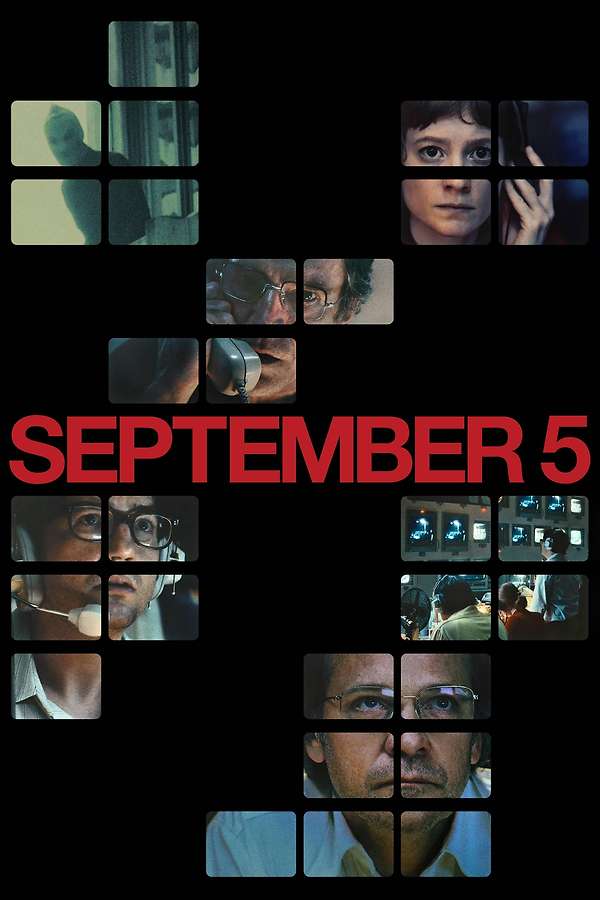
Watched on Tuesday February 11, 2025.
]]>
Watched on Friday February 7, 2025.
]]>
Watched on Thursday February 6, 2025.
]]>
Watched on Thursday February 6, 2025.
]]>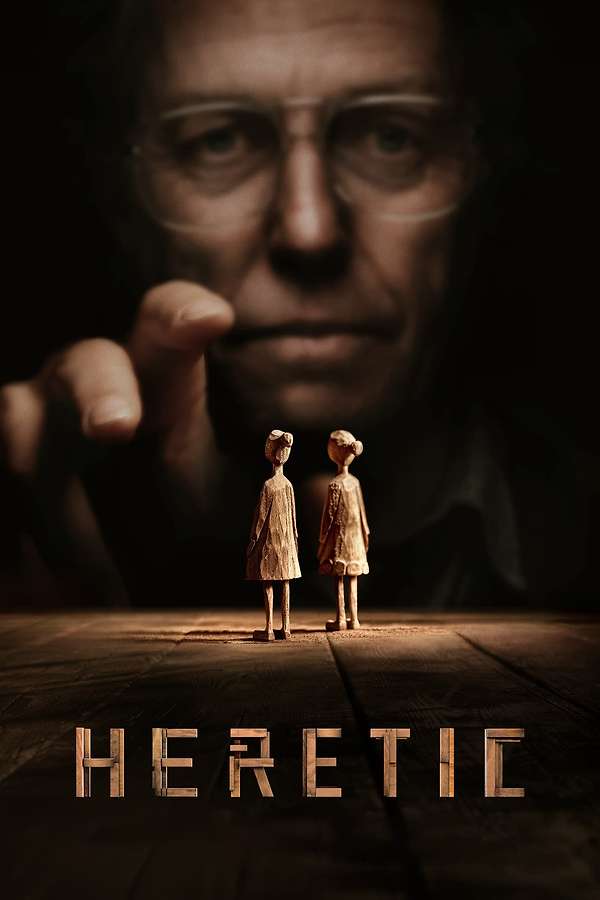
Watched on Wednesday February 5, 2025.
]]>
Watched on Sunday February 2, 2025.
]]>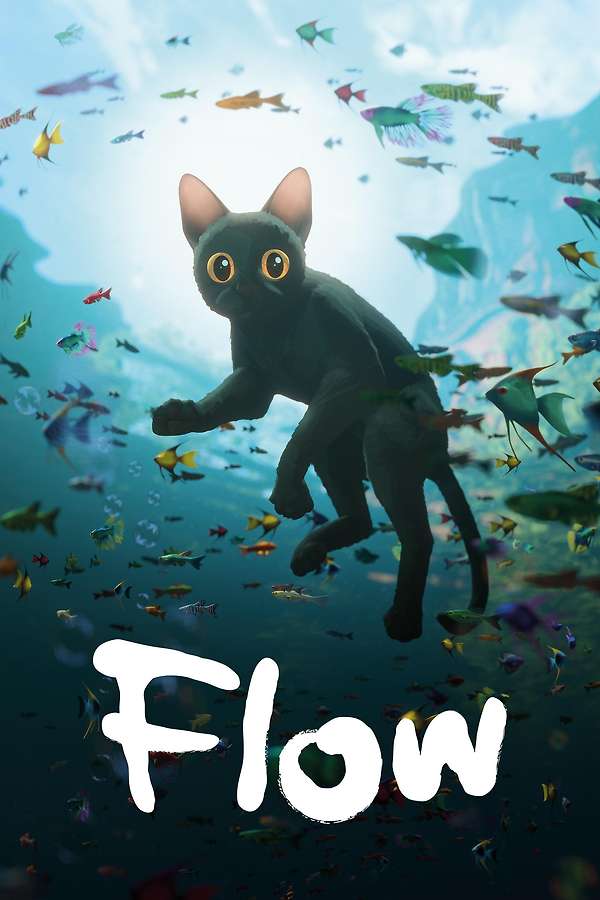
Watched on Wednesday January 29, 2025.
]]>
Watched on Sunday January 26, 2025.
]]>
Watched on Thursday January 23, 2025.
]]>Films I've seen that are set in Europe and not in the English language. No docs.
- The 400 Blows
- Close
- Pan's Labyrinth
- The Painted Bird
- Come and See
- Portrait of a Lady on Fire
- Fanny and Alexander
- The Zone of Interest
- Petite Maman
- Son of Saul
...plus 59 more. View the full list on Letterboxd.
]]>- Close
- The Florida Project
- Uncut Gems
- The Zone of Interest
- Lean on Pete
- Room
- Aftersun
- The Witch
- The Whale
- Minari
...plus 56 more. View the full list on Letterboxd.
]]>Not released in US theaters near me or on VOD. Release date within the next year give or take.
- Sentimental Value
- Avatar: Fire and Ash
December 19, 2025
- Sirât
- The Plague
- Resurrection
- Left-Handed Girl
- Sound of Falling
- Jay Kelly
November 14
December 5 (Netflix) - No Other Choice
- Orphan
...plus 5 more. View the full list on Letterboxd.
]]>My ranking of every film I've seen that debuted at Cannes from 2021 through 2024. So many incredible movies! I appreciated every single one. I'm excited to see the 2025 selections when they get released in theaters over the next year.
- Close
- The Zone of Interest
- Aftersun
- Anatomy of a Fall
- Perfect Days
- Titane
- The Seed of the Sacred Fig
- Flow
- Cow
- Playground
...plus 33 more. View the full list on Letterboxd.
]]>A selection of observational-style docs showing the quiet depth that pulses through everyday life, without directing you to a specific larger point or ideology. Naturally, children and animals are common subjects for this type of empathetic cinema.
1-26 are a ranked list of my favorites.
27+ are films on my watchlist.
If you appreciate these films, you may also be interested in their fictional equivalents in my Neorealism with Smartphones list.
- Minding the Gap
- Streetwise
- Hoop Dreams
- Cow
- Nanook of the North
- 28 Up
- Born in the USSR: 14 Up
- Mr. Bachmann and His Class
- A House Made of Splinters
- 17 Blocks
...plus 33 more. View the full list on Letterboxd.
]]>The International Documentary Association (IDA), founded in 1982, is a nonprofit with approximately 2,000 that is dedicated to promoting nonfiction filmmakers. The IDA Documentary Awards were first presented in 1985. Between 1985 and 1996, approximately five films received the Best Feature award each year. Between 1997 and 2008, the IDA typically presented the award to two films. Since 2008, one film has received the award each year.
- No Other Land
- Bobi Wine: The People's President
- All That Breathes
- Flee
- Crip Camp: A Disability Revolution
- For Sama
- Minding the Gap
- Dina
- O.J.: Made in America
- The Look of Silence
...plus 78 more. View the full list on Letterboxd.
]]>Neorealism of the current day.
Neorealist films focus on everyday life and the struggles of ordinary people and often feature non-professional actors, location shooting, and a documentary-like style.
I am using "smartphones" as a way to filter for movies capturing the everyday lives of most people in the 2010s or 2020s, since smartphones are so ubiquitous in our lives today. It is not important for the smartphone to be a main part of the plot, but it needs to show at least one smartphone, even if just in the background.
I am using the term "neorealism" somewhat loosely as it is often used to refer more specifically to the postwar Italian Neorealism movement.
- Tangerine
- The Florida Project
- Never Rarely Sometimes Always
- John Denver Trending
- American Honey
- Perfect Days
- Nomadland
- Causeway
- Eighth Grade
- Mars One
...plus 33 more. View the full list on Letterboxd.
]]>Highest rated foreign language aka non-English films. Only includes films in the "official" top 250 list, so there is a 15,000 rating threshold and no documentaries are included.
- Harakiri
- Come and See
- Seven Samurai
- The Human Condition III: A Soldier's Prayer
- High and Low
- City of God
- Parasite
- Yi Yi
- The Human Condition I: No Greater Love
- Ikiru
...plus 90 more. View the full list on Letterboxd.
]]>- Dune: Part Two
- I'm Still Here
- The Seed of the Sacred Fig
- Flow
- Sometimes I Think About Dying
- KIX
- A New Kind of Wilderness
- The Substance
- Challengers
- My Sunshine
...plus 59 more. View the full list on Letterboxd.
]]>Films first released in 2023. See list with 2023 release dates in US specifically here: boxd.it/n3iE8
- The Zone of Interest
- Anatomy of a Fall
- Past Lives
- Perfect Days
- Monster
- Skinamarink
- The Boy and the Heron
- How to Have Sex
- Oppenheimer
- Astrakan
...plus 41 more. View the full list on Letterboxd.
]]>- Call Me by Your Name
- Harry Potter and the Philosopher's Stone
- The Father
- Aftersun
- Schindler's List
- A Room for Romeo Brass
- 28 Days Later
- The Prestige
- Harry Potter and the Prisoner of Azkaban
- Ratatouille
...plus 91 more. View the full list on Letterboxd.
]]>All the miniseries I've seen that are on Letterboxd
- Big Little Lies
- When They See Us
- Unorthodox
- Wild Wild Country
- Beartown
- Tiger King
- We Are Who We Are
- Station Eleven
- Adolescence
- WandaVision
...plus 9 more. View the full list on Letterboxd.
]]>Films I've seen that are set in Asia and are not in the English language. No docs.
- Grave of the Fireflies
- Nobody Knows
- Capernaum
- Shoplifters
- My Father My Lord
- Like Father, Like Son
- John Denver Trending
- A Sun
- Perfect Days
- Burning
...plus 46 more. View the full list on Letterboxd.
]]>Not including docs.
- Y Tu Mamá También
- City of God
- The Second Mother
- Central Station
- Roma
- I'm Still Here
- Tigers Are Not Afraid
- Loveling
- Pixote
- Emilia Pérez
...plus 15 more. View the full list on Letterboxd.
]]>- Instruments of a Beating Heart
- The Man Who Could Not Remain Silent
- Yuck!
- I Am Ready, Warden
- A Lien
- Anuja
- Wander to Wonder
- Incident
- Magic Candies
- I'm Not a Robot
...plus 4 more. View the full list on Letterboxd.
]]>I'm including 2021 movies if they're in the running for Oscars alongside 2020 movies
- The Painted Bird
- The Father
2021
- A Sun
- Sound of Metal
- Minari
- Tenet
- I'm Thinking of Ending Things
- Another Round
- Better Days
- Malcolm & Marie
2021
...plus 31 more. View the full list on Letterboxd.
]]>No adaptations, no sequels, no franchise entries (except the first entry), nothing based on a true story.
Ranked based on global box office adjusted for inflation.
- Avatar
- Star Wars
- E.T. the Extra-Terrestrial
- Independence Day
- Finding Nemo
- Raiders of the Lost Ark
- Close Encounters of the Third Kind
- The Sixth Sense
- Home Alone
- American Graffiti
...plus 20 more. View the full list on Letterboxd.
]]>- Interstellar
- Boyhood
- Nightcrawler
- The Double
- Enemy
- Gone Girl
- The Look of Silence
- X-Men: Days of Future Past
- The Hunger Games: Mockingjay – Part 1
- What We Do in the Shadows
...plus 44 more. View the full list on Letterboxd.
]]>- Like Father, Like Son
- Spring Breakers
- The Hunger Games: Catching Fire
- Mud
- Snowpiercer
- The Wolf of Wall Street
- This Is the End
- Prisoners
- 12 Years a Slave
- Now You See Me
...plus 41 more. View the full list on Letterboxd.
]]>- Room
- Son of Saul
- Beasts of No Nation
- The Second Mother
- Anomalisa
- Sleeping Giant
- Ex Machina
- Tangerine
- 45 Years
- Our Little Sister
...plus 38 more. View the full list on Letterboxd.
]]>- The Father
- C'mon C'mon
- Titane
- Petite Maman
- Playground
- Licorice Pizza
- The Worst Person in the World
- Dune
- Red Rocket
- 17 Blocks
...plus 36 more. View the full list on Letterboxd.
]]>If they are on Letterboxd (many mini-series aren't on the site, especially if they're a part of an anthology series). Sorted by release date.
- Baby Reindeer
- Ripley
- Lessons in Chemistry
- BEEF
- Daisy Jones & the Six
- Fleishman Is in Trouble
- DAHMER - Monster: The Jeffrey Dahmer Story
- Obi-Wan Kenobi
- The Dropout
- Inventing Anna
...plus 44 more. View the full list on Letterboxd.
]]>- Close
- Aftersun
- The Whale
- Everything Everywhere All at Once
- Avatar: The Way of Water
- TÁR
- Cow
- A House Made of Splinters
- Bones and All
- Falcon Lake
...plus 45 more. View the full list on Letterboxd.
]]>- Shoplifters
- Minding the Gap
- Lean on Pete
- We the Animals
- Capernaum
- First Man
- Annihilation
- Roma
- Climax
- Sorry to Bother You
...plus 66 more. View the full list on Letterboxd.
]]>The Letterboxd algorithm was significantly changed on June 19, 2023. This is the cloned version of the highest ranked non-English language films from before the update to the algorithm. The current list can be found here: letterboxd.sitesdebloques.org/y2k/list/the-official-letterboxd-top-100-non-english/
- Come and See
- Parasite
- A Dog's Will
- Harakiri
- The Human Condition III: A Soldier's Prayer
- Seven Samurai
- Spirited Away
- Central Station
- High and Low
- City of God
...plus 90 more. View the full list on Letterboxd.
]]>- Sorry to Bother You
- Joker
- The Second Mother
- I Am Cuba
- Parasite
- American Factory
- Harlan County U.S.A.
- Judas and the Black Messiah
- The Edge of Democracy
- Two Days, One Night
...plus 6 more. View the full list on Letterboxd.
]]>From this list on IMDb: www.imdb.com/list/ls077140585/
Adjusted for ticket price, so the ranking is based on estimated number of tickets sold.
Updated numbers as of 5/30/2024.
- Gone with the Wind
- Snow White and the Seven Dwarfs
- Titanic
- Avatar
- Ben-Hur
- Avengers: Endgame
- The Ten Commandments
- Star Wars
- The Sound of Music
- E.T. the Extra-Terrestrial
...plus 140 more. View the full list on Letterboxd.
]]>- Manchester by the Sea
- The Witch
- Arrival
- Captain Fantastic
- Moonlight
- La La Land
- Sing Street
- After the Storm
- Weiner
- 20th Century Women
...plus 47 more. View the full list on Letterboxd.
]]>- Joker
- Uncut Gems
- Honey Boy
- Portrait of a Lady on Fire
- The Lighthouse
- Parasite
- John Denver Trending
- 1917
- Better Days
- For Sama
...plus 52 more. View the full list on Letterboxd.
]]>2023 original releases list here: boxd.it/omVrO
- Close
- The Zone of Interest
- Anatomy of a Fall
- Past Lives
- Falcon Lake
- Monster
- A House Made of Splinters
- Skinamarink
- The Eight Mountains
- The Boy and the Heron
...plus 42 more. View the full list on Letterboxd.
]]>- Nobody Knows
- Shoplifters
- Like Father, Like Son
- Monster
- After the Storm
- Still Walking
- Our Little Sister
- Maborosi
- Broker
- I Wish
...plus 1 more. View the full list on Letterboxd.
]]>- The Florida Project
- Call Me by Your Name
- Logan
- Get Out
- Wind River
- One of Us
- The Shape of Water
- War for the Planet of the Apes
- Blade Runner 2049
- Wonder
...plus 43 more. View the full list on Letterboxd.
]]>Last predictions were in June.
Added Poor Things, Barbie, and American Fiction after their premieres, as well as Anatomy of a Fall, and dropped The Zone of Interest, Dune 2, Spider-Man, and The Killer.
Still keeping Napoleon, which won't debut for another two months and does not have a lot of buzz. And squeaked in American Fiction over Maestro. Otherwise, not really bucking consensus.
]]>- Black Swan
- Inception
- Boy
- The Social Network
- How to Train Your Dragon
- Shutter Island
- 10½
- Winter's Bone
- Harry Potter and the Deathly Hallows: Part 1
- Scott Pilgrim vs. the World
...plus 19 more. View the full list on Letterboxd.
]]>Killers of the Flower Moon is the only lock for a nomination but it likely won't win.
Best Picture winning formula = Critical acclaim + uplifting story + sellable/charismatic cast and crew package + some commerical success + socially conscious message seen as timely.
]]>Films I've seen that are set in Africa. No docs. Includes movies produced elsewhere, as long as they center African characters rather than visitors.
]]>As of 3/11/2023.
Criteria:
-Must be in the 1000 movies from 2022 with the most votes
-Must have an average rating greater than 7.5
-Must be a feature-length film
-Unfortunately I needed to exclude Indian films, since they are virtually all reverse review-bombed, meaning that they often have more than 80 percent 10/10 votes while also receiving a 5.5 or less from the top 1000 voters. There are some movies that are not as affected by the review-bombing, but it is hard to separate them out. This is not to say that there weren't great Indian movies in 2022, because there definitely were. For a full list that includes Indian movies, see here.
- Top Gun: Maverick
Average rating: 8.3
Top 1000 voters: 7.6
10/10 percentage: 29% - Burning Days
Average rating: 8.1
Top 1000 voters: 7.3
10/10 percentage: 23% - Everything Everywhere All at Once
Average rating: 8.0
Top 1000 voters: 7.3
10/10 percentage: 26% - Puss in Boots: The Last Wish
Average rating: 7.9
Top 1000 voters: 7.3
10/10 percentage: 23% - Close
Average rating: 7.9
Top 1000 voters: 7.4
10/10 percentage: 16% - The Whale
Average rating: 7.8
Top 1000 voters: 7.2
10/10 percentage: 20% - The Banshees of Inisherin
Average rating: 7.8
Top 1000 voters: 7.5
10/10 percentage: 10% - Avatar: The Way of Water
Average rating: 7.8
Top 1000 voters: 7.6
10/10 percentage: 22% - All Quiet on the Western Front
Average rating: 7.8
Top 1000 voters: 7.6
10/10 percentage: 11% - The Batman
Average rating: 7.8
Top 1000 voters: 7.3
10/10 percentage: 21%
...plus 6 more. View the full list on Letterboxd.
]]>Best films from 2000 to 2021 according to six critics at the Hollywood Reporter. List from April 2023.
Methodology as described on the site: "We all offered up titles we thought were worthy of consideration (an initial list of well over 100 movies). Everyone voted “yea” or “nay” on each of those titles. The films with the most yeas — about 80 — advanced to the next round. Everyone scored each title from 0 to 3. We tallied up the points, and then hashed it out from there. Countless emails and a few long Zoom meetings later, we had our list."
"Our only parameters: All six of us had to love, like or at least respect every film on the list. And we did not consider anything from 2022; it just felt too soon (translation: after the forever-long awards season, we needed a breather from talking about Tár, Everything Everywhere All at Once and the rest of ’em)."
See list published here: www.hollywoodreporter.com/lists/best-movies-21st-century/weekend-2011/
Honorable mentions (in alphabetical order): Caché (Michael Haneke, 2005); The Dark Knight (Christopher Nolan, 2008); L’Enfant (The Child) (Jean-Pierre and Luc Dardenne, 2006); Holy Motors (Leos Carax, 2012); The Hurt Locker (Kathryn Bigelow, 2009); Margaret (Kenneth Lonergan, 2011); Marriage Story (Noah Baumbach, 2019); The Piano Teacher (Michael Haneke, 2002); The Royal Tenenbaums (Wes Anderson, 2001); Summer Hours (Olivier Assayas, 2009); There Will Be Blood (Paul Thomas Anderson, 2007); Under the Sand (François Ozon, 2001); Under the Skin (Jonathan Glazer, 2014); Vera Drake (Mike Leigh, 2004); Waltz With Bashir (Ari Folman, 2008)
- Yi Yi
- Inside Llewyn Davis
- The Gleaners and I
- Zodiac
- Mulholland Drive
- Spirited Away
- Brokeback Mountain
- In the Mood for Love
- 4 Months, 3 Weeks and 2 Days
- Get Out
...plus 40 more. View the full list on Letterboxd.
]]>favorite first time watches from the last three years
- Hoop Dreams
- Grave of the Fireflies
- Joker
- The Painted Bird
- Gummo
- Like Father, Like Son
- Beasts of No Nation
- Uncut Gems
- Close
- The Father
...plus 12 more. View the full list on Letterboxd.
]]>- The Tree of Life
- Pariah
- Drive
- Attack the Block
- Take Shelter
- A Separation
- X-Men: First Class
- Harry Potter and the Deathly Hallows: Part 2
- Super 8
- Contagion
...plus 24 more. View the full list on Letterboxd.
]]>- The Florida Project
- Moonlight
- American Honey
- American Factory
- Minding the Gap
- Lean on Pete
- Wind River
- Spring Breakers
- Hustlers
- Sorry to Bother You
...plus 19 more. View the full list on Letterboxd.
]]>- Paper Moon
- The Outsiders
- There Will Be Blood
- Gummo
- The Color Purple
- Thelma & Louise
- Minari
- Brokeback Mountain
- Do the Right Thing
- American History X
...plus 29 more. View the full list on Letterboxd.
]]>- The Act of Killing
- Django Unchained
- Beasts of the Southern Wild
- The Perks of Being a Wallflower
- The Dark Knight Rises
- Zero Dark Thirty
- s Ha
- The Hunt
- The Impossible
- The Hunger Games
...plus 27 more. View the full list on Letterboxd.
]]>movies I watched for the first time as a freshman or sophomore in college and also loved at the time
- A.I. Artificial Intelligence
- Room
- Pan's Labyrinth
- Apocalypse Now
- Dazed and Confused
- Manchester by the Sea
- Donnie Darko
- Spring Breakers
- The Outsiders
- Mud
...plus 12 more. View the full list on Letterboxd.
]]>- The Sixth Sense
- Harry Potter and the Philosopher's Stone
- Shoot 'Em Up
- This Is the End
- Donnie Darko
- The Double
- Saw
- The Hunger Games: Catching Fire
- Ocean's Eleven
- Empire of the Sun
...plus 28 more. View the full list on Letterboxd.
]]>films I watched for the first time as a junior or senior in college and also loved at the time
- The Florida Project
- The 400 Blows
- Minding the Gap
- Shoplifters
- Black Swan
- Call Me by Your Name
- Lean on Pete
- Boy
- The Second Mother
- We the Animals
...plus 7 more. View the full list on Letterboxd.
]]>- Minding the Gap
- The Act of Killing
- Won't You Be My Neighbor?
- Three Identical Strangers
- One of Us
- Dominion
- For Sama
- Weiner
- 13th
- Knock Down the House
...plus 10 more. View the full list on Letterboxd.
]]>Movies with an amazing first half and a mediocre or disappointing second half
...plus 6 more. View the full list on Letterboxd.
]]>- Belfast
- The Tragedy of Macbeth
- C'mon C'mon
- Malcolm & Marie
- ing
- Mank
- The Painted Bird
- Time
- The Lighthouse
- Rewind
...plus 6 more. View the full list on Letterboxd.
]]>www.reddit.com/r/IcebergCharts/comments/ku14fx/directors_iceberg/
1-29 = Tier 1 [Pleb]
30-70 = Tier 2 [Movie fan]
71-113 = Tier 3 [Letterboxd normie]
114-151 = Tier 4 [School of Cinematic Arts]
152-200 = Tier 5 [Cahiers du Cinéma]
201-252 = Tier 6 [Kino lobster]
253-294 = Tier 7 [はは、誰もこれを読むことができません]
295-305 = Tier 8 [Stuckmanized]
- Transformers
Tier 1
- Forrest Gump
- Split
- The Lord of the Rings: The Fellowship of the Ring
- Jurassic Park
- Star Wars
- 1917
- Titanic
- The Breakfast Club
- Pulp Fiction
...plus 293 more. View the full list on Letterboxd.
]]>